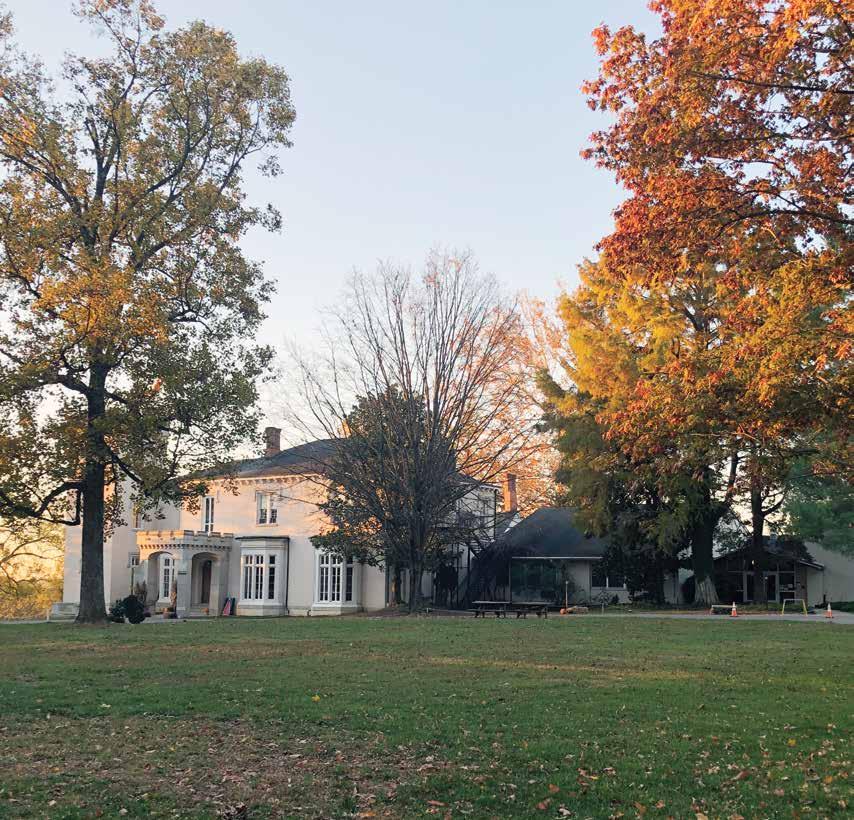

MISSION
At Glenelg Country School, our mission is to cultivate a diverse community of learners who discover, contribute, thrive, and excel.
ACCREDITATION
Glenelg Country School is accredited, age two through twelfth grade, by the Association of Independent Maryland & DC Schools (AIMS) and by the Middle States Association of Schools and Colleges (MSA).
The School is affiliated with the Association of Independent Maryland & DC Schools (AIMS), the National Association of Independent Schools (NAIS), and the Educational Records Bureau (ERB).


HEAD OF SCHOOL
Matt Walsh
DIRECTOR OF INSTITUTIONAL ADVANCEMENT
Philip Consuegra, EdD
DESIGN
Danielle Peterson
EDITOR
Danielle Peterson
CONTRIBUTING WRITERS
Jess Dolan, Evelyn Johnson, Lindsay Frost-Bhasin, Danielle Peterson, Joseph Sierzega, and Aaron Tolentino ’03
PHOTOGRAPHY
Danielle Peterson, Whitney Wasson, and Classic Photography
© 2025 Glenelg Country School
Please direct questions and comments to communications@glenelg.org.
12793 Folly Quarter Road
Ellicott City, Maryland 21042
www.glenelg.org
410.531.8600
Cover: The historic Manor House, home to Glenelg Country’s Lower School, provides a resplendent backdrop to outdoor learning and play for students for all ages.
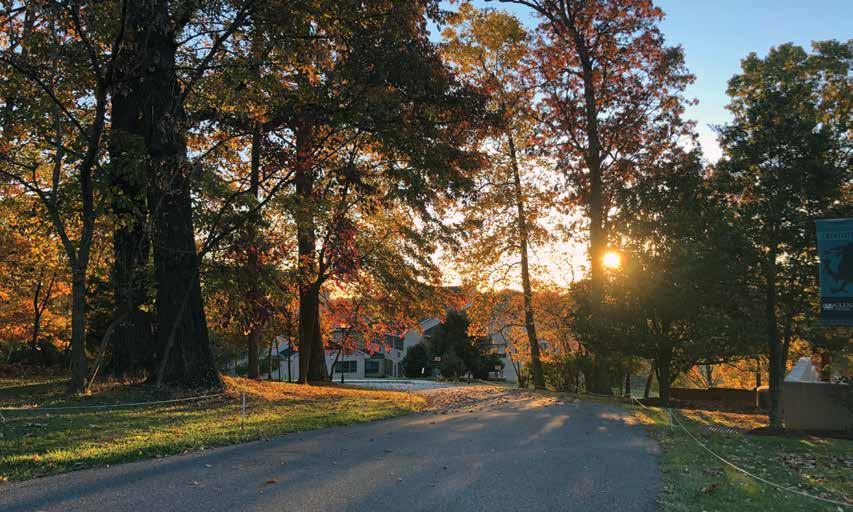




Glenelg Country School’s campus in autumn offers spectacular views of the sunrise, as seen here on the road between the Middle and Upper Schools.
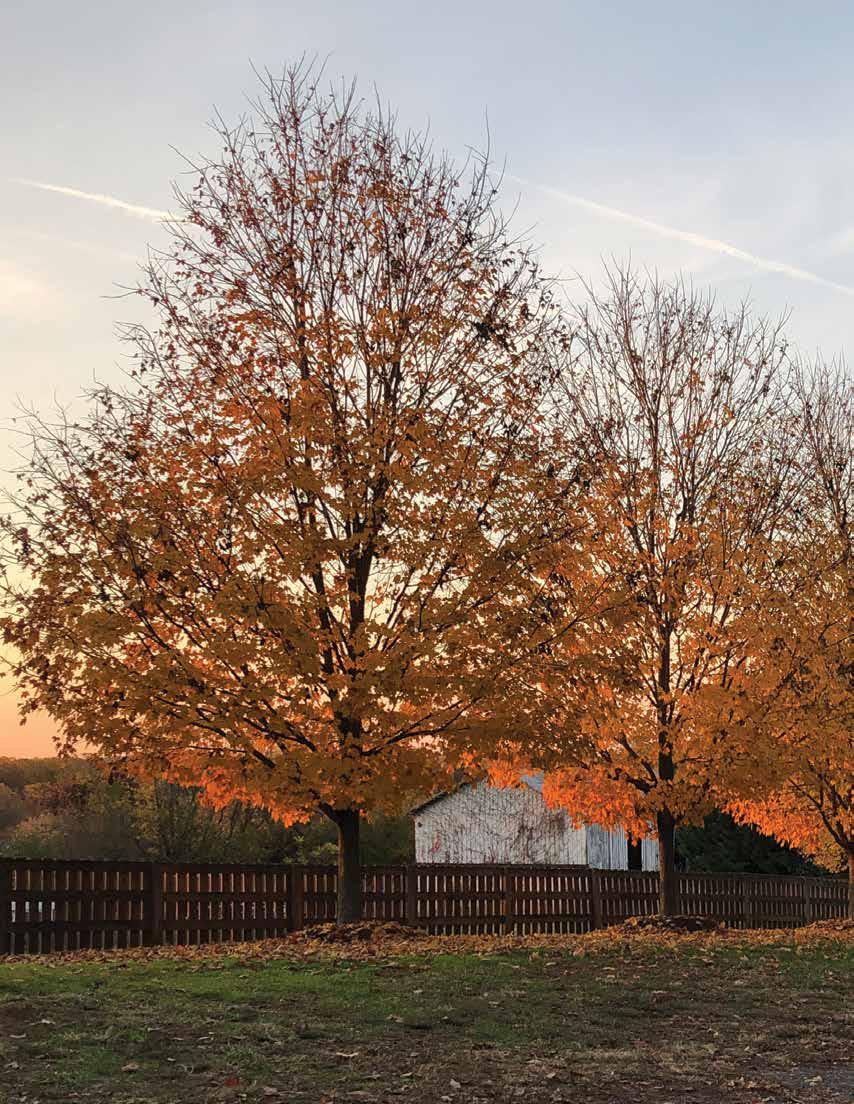
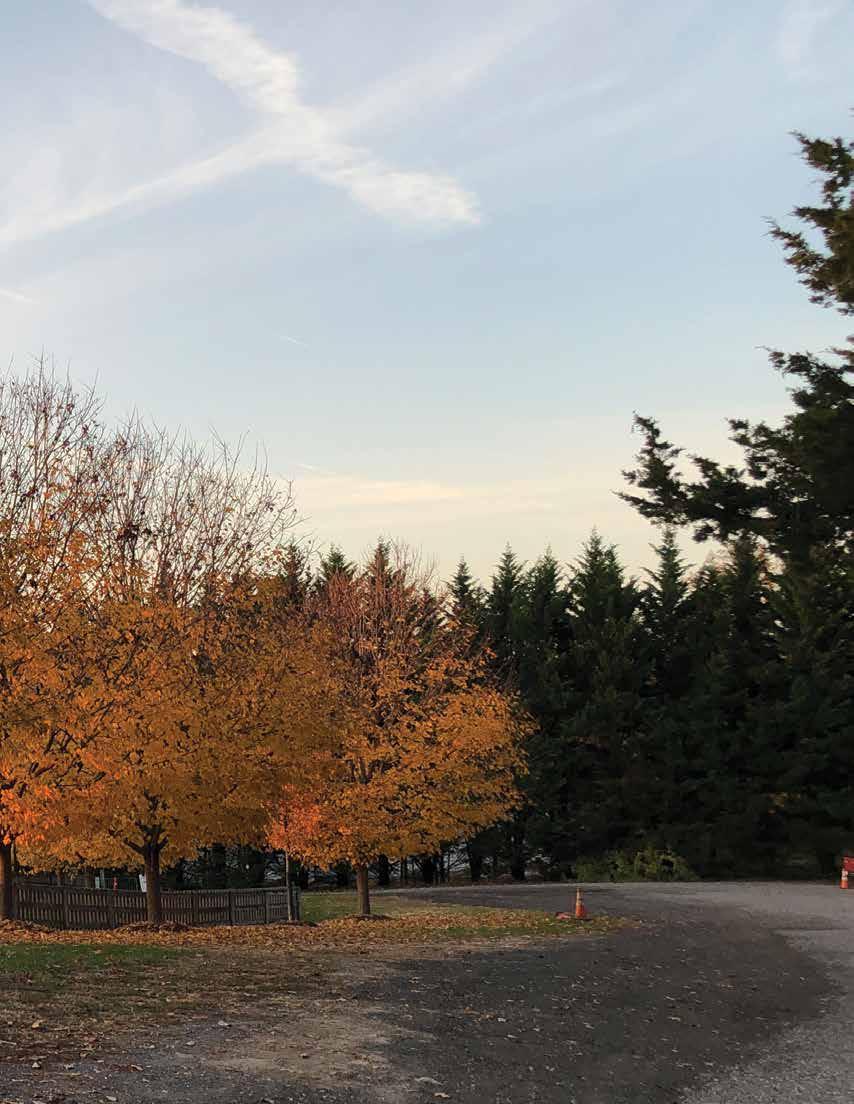
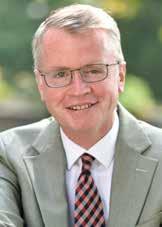
FROM THE HEAD OF SCHOOL
Each fall brings the joy of fresh beginnings—new classes, new faces, and renewed energy across our campus. Walking through the halls in these first weeks, I am struck by how vibrantly our culture of curiosity, care, and community comes alive when our Dragons return. This issue of Spirit of the Dragon celebrates that vitality, highlighting the many ways we remain true to our mission while continuing to grow as a learning community.
A central theme of this edition is honoring our roots while embracing our future. The feature on the reestablishment of the Primary School captures this balance beautifully. By returning to our original model of serving our youngest learners in a dedicated division, we reaffirm the values on which Glenelg Country School (GCS) was founded while giving faculty and families an even stronger foundation for the years ahead.
This issue also explores how we demonstrate our commitment to excellence and accountability. The piece on our accreditation process explains not only the standards we meet but the promise we make to each student and family who entrust us with their education. Accreditation affirms what we already know: that GCS is a place where students discover, contribute, thrive, and excel.
Our academic sections offer a glimpse of the innovation alive in classrooms across every division. From new faculty bringing their gifts to campus, to student leadership initiatives and creative learning projects, the throughline is unmistakable—our students are empowered to take ownership of their learning and to grow in both confidence and character.
Beyond academics, you will also read about our vibrant arts and athletics programs, where students build discipline, teamwork, and joy. The previews of our fall performances and sports seasons remind us that whether on stage or on the playing field, our Dragons learn lessons that last far beyond their time here.
Equally important are the ways our students and families extend their learning into the wider world. This issue highlights service projects, community involvement, and profiles of families and alumni who exemplify the enduring strength of our school’s bonds. Together, these stories underscore how deeply GCS is rooted in relationships— between students and teachers, families and school, and graduates and their alma mater.
As we embark on this academic year, I am grateful for the many ways you—our parents, alumni, friends, and supporters—contribute to the life of Glenelg Country School. Thank you for your partnership in cultivating a community where tradition and innovation go hand in hand, and where each child is known, valued, and inspired.
I hope you enjoy exploring this edition of Spirit of the Dragon. May it give you a sense of the joy, purpose, and promise that fill our campus this fall.
MATT WALSH
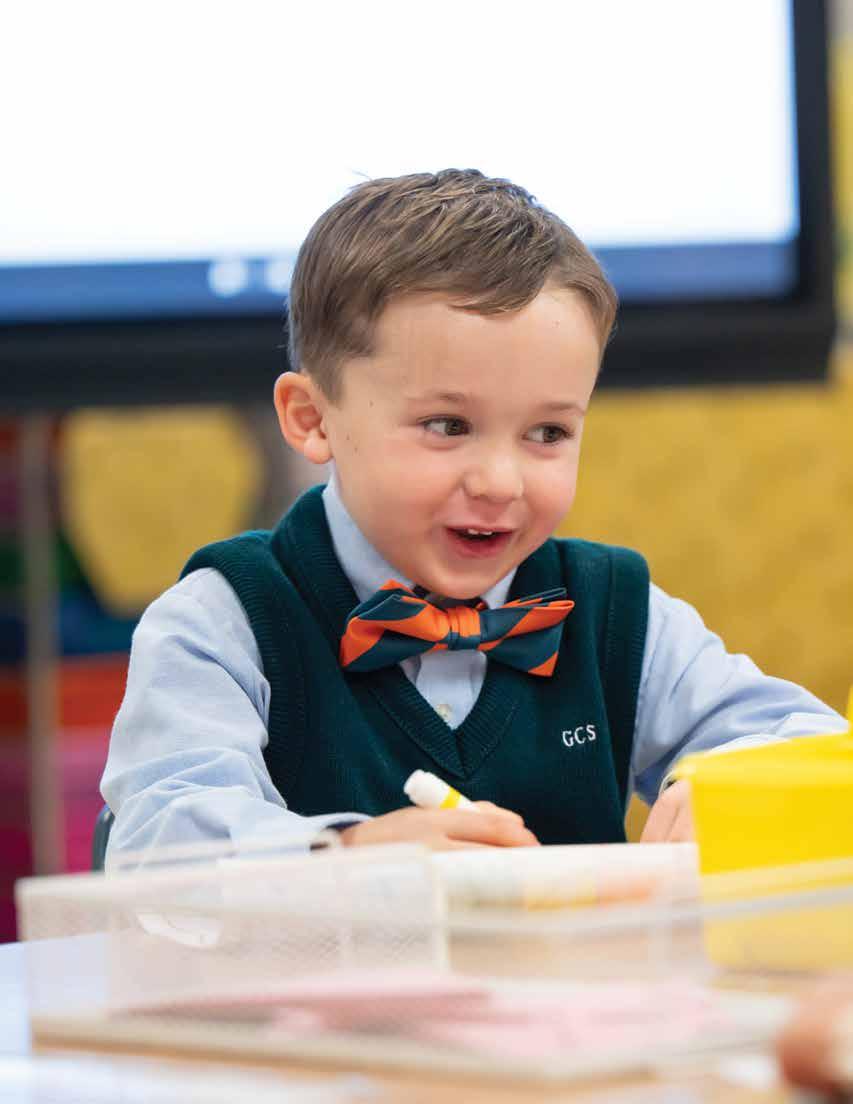

BACK TO OUR ROOTS
THE REESTABLISHMENT OF THE PRIMARY SCHOOL AFFIRMS COMMITMENT TO ITS YOUNGEST LEARNERS.
By Karen Mendoza HEAD OF PRIMARY SCHOOL
In January 2002, Glenelg Country School (GCS) celebrated a significant milestone with the opening of the Primary School, a thoughtfully designed facility for the school’s youngest learners, aged two to five. School founders Kingdon and Mary Gould generously gifted this building, dedicated in memory of their granddaughter, Lucia Lancaster. Her portrait, displayed near the entrance, serves as a daily reminder of the love and vision that inspired this special place.
From its inception, the Primary School provided a nurturing environment where early childhood education could flourish. For more than a decade, it operated as an independent division, grounded in developmentally appropriate practices. In 2014, following the retirement of longtime head Lynda Rotter, the Primary and Lower Schools merged to serve children from age two through grade five. While the merger brought greater continuity, it became clear over time that the youngest learners required a more focused, age-specific approach.
Beginning with the 2025–2026 school year, GCS has reestablished the Primary School as a distinct division. This decision honors the school’s history while taking a bold step forward, reaffirming a deep commitment to early childhood education. Rooted in growth, the Primary School ensures that the youngest students receive the dedicated care, curriculum, and environment they need to thrive.
The division’s curriculum emphasizes not only what students learn but how they learn. A child-centered approach fosters independence, critical thinking, and a lifelong passion for learning. Guided by a Reggio-inspired philosophy, the program views children as capable, curious, and full of potential. Learning becomes a collaborative journey shaped
by individual interests, expressed through multiple forms, and supported by strong relationships among students, teachers, and families.
Project-based learning fosters creativity, collaboration, and problem-solving, while hands-on exploration allows students to engage deeply with real-world topics. A hallmark of the program is Remida, a creative recycling center inspired by the Remida Center in Reggio Emilia, Italy. In this imaginative space, repurposed materials—such as bottle caps, fabric scraps, and cardboard tubes—become tools for art, innovation, and discovery, enabling students to see the beauty and possibilities in everyday objects.
Early childhood is a time of profound cognitive, social, emotional, and physical growth. Research from the National Association for the Education of Young Children affirms that the first five years of life are critical to brain development and long-term success. During this formative stage, children require consistent routines, environments that cultivate curiosity, and educators who comprehend their developmental needs.
The reestablished Primary School reflects these needs with an intentional, play-based environment where learning comes to life through sensory experiences, storytelling, hands-on math, and nature-based science. Students build, paint, role-play, observe insects, and ask big questions about the world around them—each moment a meaningful step in their developmental journey.
Social and emotional learning is equally important. At this age, children learn to express feelings, form friendships, and solve problems with guidance. Small class sizes, consistent routines, and nurturing relationships help students feel safe,
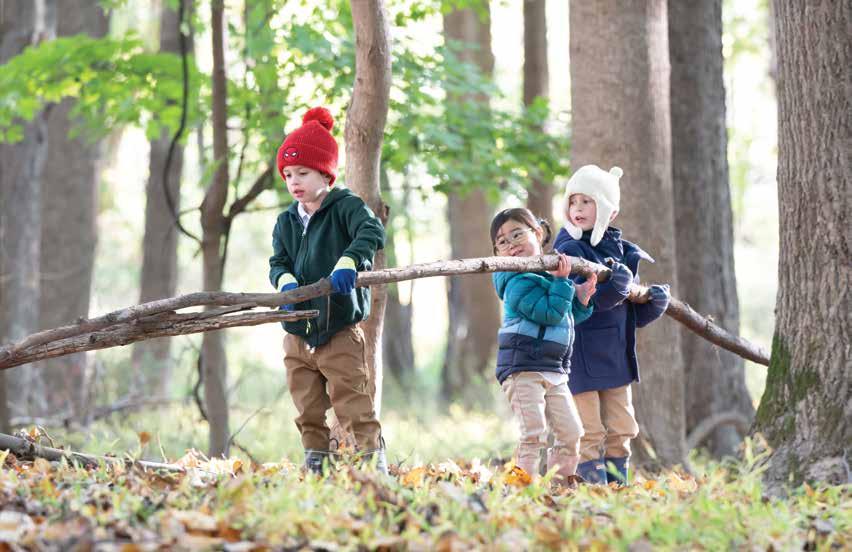
valued, and confident. These strong foundations empower them to take risks, learn from mistakes, and grow with courage and curiosity.
The reestablished division also strengthens collaboration among educators. With a concentrated age range, faculty can engage in targeted professional development, thoughtful planning, and shared reflection, ensuring a cohesive and enriching experience for every student. With a division head focused solely on the Primary School, leadership decisions—whether regarding curriculum, child development, or family partnerships—are informed by deep expertise in early childhood education.
Perhaps most meaningful is the strengthened partnership with families. Families with young children have unique needs in terms of communication, reassurance, and connection. The Primary School offers a dedicated space where these relationships can grow and thrive.
Developmentally appropriate and emotionally responsive environments support students, helping them grow into bold thinkers, joyful learners, and kind friends. These early experiences do more than prepare them for school; they shape who they will become.
With renewed energy, the Primary School offers continuity, a sense of belonging, and a community that honors the early years of learning. This reestablishment celebrates the Gould family’s original vision while addressing the evolving needs of today’s students and families.
By investing in a program exclusively for students ages two to five, Glenelg Country School is prioritizing what matters most: the foundational years of learning and discovery. Rooted in growth, the Primary School once again stands as a joyful, nurturing home to its youngest learners—a place where creativity blossoms, confidence grows, and a lifelong love of learning begins. n
Primary School students work together to lift a tree branch during Forest Time, an outdoor learning experience that fosters curiosity and a love for nature through hands-on discovery beyond the traditional classroom.
PROVING WHAT WE PROMISE
HOW ACCREDITATION ENSURES GLENELG COUNTRY SCHOOL DELIVERS ON ITS MISSION.
By W. Gregory Koffel ’03 ASSOCIATE HEAD OF SCHOOL FOR PROGRAMS AND STUDENT LIFE
Glenelg Country School (GCS) actively fosters a vibrant, inclusive community that inspires students to explore, grow, and reach their full potential. This commitment to students, families, faculty, and the broader community guides decisions, shapes the classroom experience, and drives the school’s progress. The question remains: how does GCS ensure it fulfills this commitment? One clear answer is accreditation.
For independent schools such as Glenelg Country, accreditation is far more than a formality. It is a rigorous, reflective, and ongoing process of self-examination and external review that ensures the school delivers on its commitments with excellence. Accreditation validates that programs, policies, and culture meet high standards of educational quality and institutional integrity. More importantly, it drives continuous improvement.
The Association of Independent Maryland & DC Schools (AIMS) accredits Glenelg Country School, evaluating it against a comprehensive set of standards. These standards emphasize mission alignment, strategic planning, curriculum quality, governance, leadership, equity and inclusion, student wellness, and financial stewardship. To maintain accreditation, schools must demonstrate not only that they meet these benchmarks but also that they live out their unique mission and values in everyday practice.
The accreditation process is both comprehensive and cyclical in nature. Every 10 years, member schools undergo a comprehensive review that includes a multi-year selfstudy, written by faculty and staff across the campus.
Glenelg Country is currently completing its self-study, which is expected to conclude in early 2026. Following this, a team of peer AIMS educators will conduct a multi-day campus visit in April 2026. Between accreditation cycles, schools submit an interim report after five years to demonstrate progress on goals and accountability for recommendations made during the review. These reports ensure that accreditation remains an ongoing part of a school’s culture of continuous improvement.
For GCS, accreditation presents an opportunity to reflect on strengths, address challenges, and reaffirm its mission. The process prompts the school to evaluate itself in relation to its stated goals and to ask critical questions: Is the school fostering independent thought and a shared purpose? Is it preparing students not only for college but also for lives of meaning and purpose? Is it advancing its commitment to diversity, equity, and belonging in impactful ways?
As part of the current accreditation cycle, GCS is reflecting on the strength of its academic programs, the dedication of its faculty and staff, and the cohesion of its educational journey from Little Dragons to grade 12. At the same time, the school is refining its goals, strengthening curriculum alignment across divisions, sharpening assessment practices, investing in faculty growth, and deepening support for student well-being.
Accreditation also serves as a form of transparency. For the GCS community, it signals that the GCS is accountable not only to its internal aspirations but also to external standards that are clear, public, and aligned with national
Accreditation at Glenelg Country School
A 10-Year Cycle of Growth and Accountability
Self-Study
Faculty and staff conduct a multi-year reflection on strengths and mission alignment.
Peer Review Visit
AIMS educators visit campus to evaluate programs and culture.
Recommendations & Goals
AIMS accreditation with feedback that sets benchmarks for growth and improvement.
5-Year Interim Report
Glenelg Country reports progress on goals midway through the accreditation cycle.
Continuous Improvement
Accreditation drives ongoing refinement across all areas.
best practices. It demonstrates that GCS’s promises are not empty slogans, but commitments backed by evidence, self-awareness, and action.
In many ways, accreditation reflects the very values Glenelg Country instills in its students. Just as students reflect, revise, take feedback seriously, and strive for their best work, the accreditation process holds the school to the same high standard.
The community expects and deserves an excellent school, not just in name, but in practice. Glenelg Country School continues to demonstrate that excellence and, through accreditation, sustains a tradition of growth and achievement. When the school affirms that it cultivates students who discover, contribute, thrive, and excel, accreditation serves as the proof behind that promise. n
BACK-TO-SCHOOL SPOTLIGHT
HIGHLIGHTING THE VISION AND ENERGY DRIVING GLENELG COUNTRY INTO A NEW ACADEMIC YEAR.
By Cathleen Lopez
By Brandon Neblett
By Brita Stewart HEAD OF LOWER SCHOOL HEAD OF UPPER SCHOOL ASSOCIATE
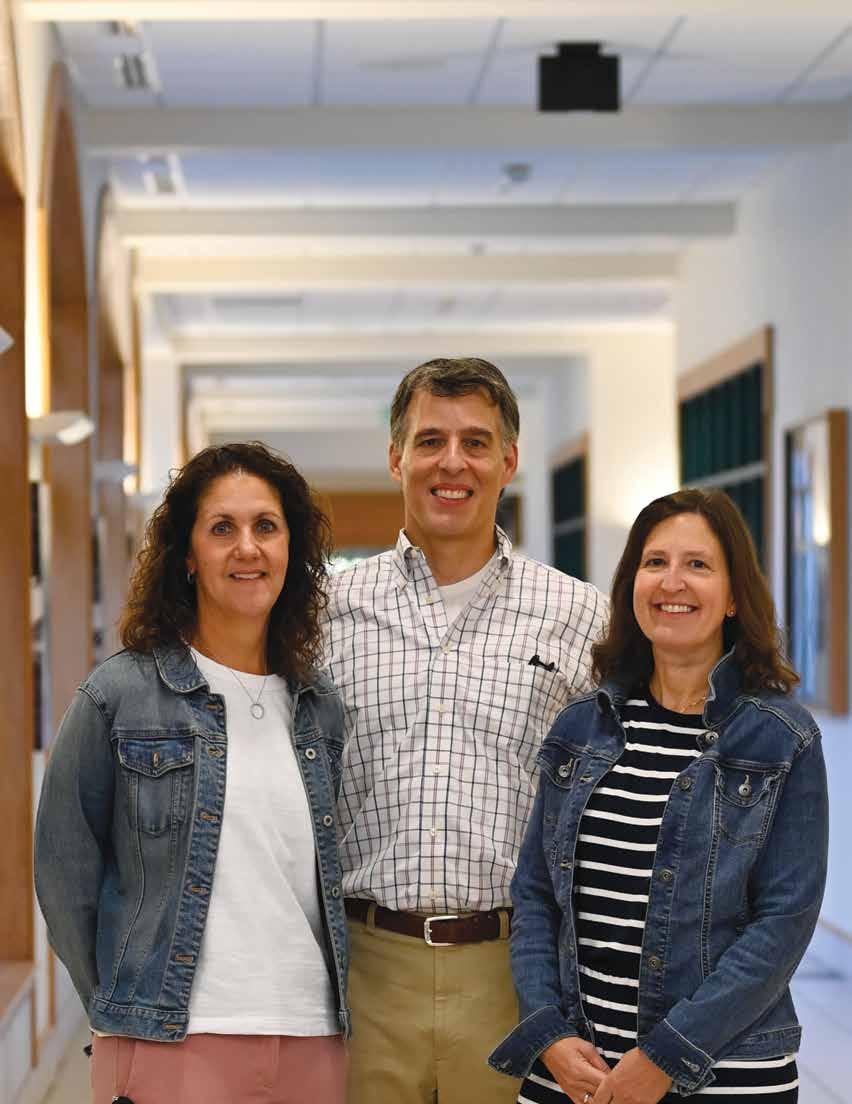
The 2025–2026 school year at Glenelg Country School begins with renewed energy and exciting developments across all divisions. This year also marks the reestablishment of the Primary School as a separate division, dedicated to the youngest learners, ages two to five. While the Primary School celebrates its return to roots, the Lower, Middle, and Upper Schools continue to introduce bold initiatives that prepare students for success at every stage of their educational journey.
HEAD OF MIDDLE SCHOOL
LOWER SCHOOL
FOSTERING GROWTH THROUGH CHALLENGE AND CONNECTION
The Lower School at Glenelg Country School (GCS) enters the 2025–2026 academic year with renewed energy and a clear sense of purpose. Under the leadership of Cathleen Lopez, the new head of Lower School, the division is embracing this year as an opportunity to grow together through reflection, innovation, and meaningful connection. Lopez brings to her role a belief that relationships lie at the heart of learning. Her personal challenge to learn every student’s name is more than symbolic; it reflects her
One of the most powerful tools in this approach is the word “yet.” Instead of saying “I can’t do this,” students are encouraged to reframe their thinking: “I can’t do this yet.” This slight shift changes the narrative from defeat to possibility, reminding them that growth takes time and effort. Author Mary Cay Ricci describes “yet” as the antidote to a fixed mindset, and GCS has fully embraced it as part of its Lower School culture.
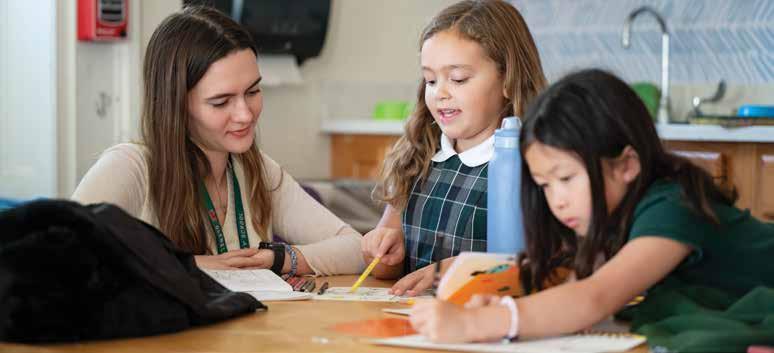
conviction that students thrive when they feel seen, known, and valued. This sense of belonging, she explains, is the foundation for risk-taking, resilience, and growth.
The Lower School builds its program on the philosophy of a growth mindset, teaching students that abilities are not fixed but develop through effort, reflection, and persistence. Students are learning to see challenges not as obstacles but as opportunities to strengthen their skills and expand their thinking. Teachers explain to students that their brains, like muscles, become stronger through productive struggle— a process supported by neuroplasticity. This scientific understanding empowers students to persevere when learning feels difficult, knowing that every attempt builds new pathways in the brain.
Teachers weave the growth mindset philosophy into every aspect of the curriculum, making it particularly evident in project-based learning. In classrooms, students take an active role in their education, collaborating on projects that connect subjects and encourage creative problemsolving. A science project might involve building a model ecosystem, prompting students to ask questions about how organisms interact with one another. A social studies project might lead students to create a living history museum, where they role-play historical figures to bring the past to life. These projects are not about rote memorization; they are about discovery, inquiry, and application. They provide authentic opportunities for students to experience the satisfaction of mastering something that initially seemed challenging.
Grit, the combination of perseverance, resilience, and sustained effort, forms another cornerstone of the Lower School experience. Lopez and her faculty believe that grit is just as important as academic knowledge. They intentionally design experiences that require persistence, helping students learn to recover from mistakes and keep trying. When students struggle with a math problem, revise a piece of writing, or attempt a challenging art project, they are practicing the trait of grit. Teachers praise not only the final product but the strategies, effort, and determination that led to the outcome. This emphasis helps students internalize the belief that success stems from hard work and persistence, rather than avoiding mistakes.
How praise is delivered plays a significant role in fostering this mindset. Instead of celebrating quick answers or innate ability, teachers focus on recognizing effort, strategies, and progress. A teacher might say, “I can see how hard you worked on this and how you tried a new approach when the first one didn’t work,” rather than simply, “You’re smart.” This type of feedback encourages students to value the learning process rather than just the outcome.
While academic growth is central, the Lower School also places equal emphasis on social and emotional development. Lopez understands that students must feel emotionally secure before they can take intellectual risks. Teachers design classrooms as nurturing environments where students express themselves, form friendships, and learn to navigate emotions. They also model empathy and kindness, guiding students to develop strong interpersonal skills and healthy relationships. When conflicts arise, faculty members use them as opportunities to teach problemsolving and emotional regulation, helping students build resilience that extends beyond academics.
The collaborative spirit among faculty supports this holistic approach. Teachers meet regularly to share insights, reflect on student progress, and adjust their practices to meet individual needs. This professional learning community ensures that no student falls through the cracks. Whether a student needs additional support in reading, enrichment in mathematics, or encouragement in social skills, Lower School faculty work collaboratively to provide that support.
Family engagement further enriches the experience. Parents are essential partners in fostering a growth mindset at home. Lopez plans to strengthen this partnership by hosting discussions and sharing resources that help families encourage effort, resilience, and curiosity outside the classroom. When school and home align, students receive consistent messages that effort is valuable and challenges are opportunities to grow.
The Lower School also values the connections students build with the broader school community. Opportunities for cross-divisional collaboration, such as buddy programs, joint assemblies, and shared performances, allow younger students to learn from role models in the Middle and Upper Schools. These interactions inspire confidence and nurture a sense of belonging that extends across campus.
Looking forward, the Lower School is excited to expand interdisciplinary learning, introduce new opportunities for student choice, and deepen reflective practices. Teachers are developing ways to integrate real-world applications into lessons, ensuring that learning feels relevant and engaging. They are also exploring innovative uses of technology to enhance creativity and problem-solving while maintaining a focus on hands-on, exploratory learning.
Lopez’s leadership is guiding the division through this period of growth with a clear vision. Her belief that every student can thrive when they are supported, challenged, and valued resonates throughout the division. “Every student deserves to feel seen, known, and valued,” she says. “When they do, they take risks, they reflect, and they grow.”
This school year promises to be transformative for Lower School students. They will encounter challenges that stretch their abilities, receive encouragement to persevere, and develop the confidence to embrace learning with curiosity and joy. Through intentional teaching, meaningful relationships, and a community that celebrates effort, GCS students develop habits of mind and heart that will serve them throughout their lives. Glenelg Country is a place where students are not just preparing for the next stage of school; they are laying the foundation for a future filled with discovery, growth, and success.
MIDDLE SCHOOL
The Middle School at Glenelg Country School (GCS) begins the 2025–2026 year with renewed energy and a strong commitment to growth in every sense—academic, ethical, and social. Associate head Brita Stewart is guiding the division with a vision that places equal emphasis on challenging students, fostering connections, and developing leadership skills. This year, the Middle School is building on existing strengths while introducing programs that transform how students interact with one another and with the world around them.
One of the most exciting changes is the introduction of monthly grade-level meetings alongside the traditional weekly Lobby Meetings. These smaller gatherings provide students with a platform to discuss topics specific to their grade level, celebrate accomplishments, and collectively address challenges. They also offer faculty and advisors an opportunity to strengthen relationships with students and facilitate a stronger sense of identity within each grade level. These meetings have quickly become a meaningful part of the Middle School’s rhythm, fostering a sense of unity while giving students a voice in shaping their experience.
School spirit also takes on a new dimension this year through an expanded Glens versus Elgs rivalry. While this friendly competition has long been a hallmark of GCS, reaching its peak during Field Day, it now continues throughout the entire year. Students earn points for their teams not only by participating in athletic events or performances but also by demonstrating acts of kindness and responsibility in their daily interactions. Holding open doors, helping a peer clean up, and showing courtesy in common spaces all contribute to the team’s success. This approach reinforces positive behavior and gives students daily opportunities to contribute to their community in meaningful ways. It also ensures that every student— whether athlete, performer, or quiet helper—has a chance to shine and support their team.
Alongside community-building initiatives, the Middle School is making ethics education a cornerstone of its program. Stewart now leads a new ethics course in which every student examines fundamental questions about right and wrong, fairness, and responsibility. These classes encourage
BUILDING COMMUNITY, ETHICS, AND LEADERSHIP
students to think critically about moral dilemmas and to consider multiple perspectives before reaching conclusions. Rather than providing students with simple answers, the course equips them with the necessary tools to navigate the complex issues they will face, both now and in the future.
Building on this foundation, special ethics sessions co-taught by Stewart and Melissa Kistler explore the intersection of ethics and artificial intelligence (AI). Students critically examine how technology influences human decisionmaking, privacy, and society as a whole. They explore questions like: How should AI be used responsibly? Who is accountable when technology makes mistakes? What ethical standards should guide innovation? These discussions not only sharpen critical thinking but also connect abstract ethical principles to real-world challenges that students will increasingly encounter as they grow up in a digital age.
For eighth-grade students, the ethics program takes an additional step by introducing the concept of ethical leadership. In this course, students learn to apply their understanding of ethics to leadership roles, preparing them to guide others with integrity. They explore scenarios where leaders must balance competing values, navigate complex decisions, and model the behaviors they expect from others. By the time students complete this program, they have built a strong moral foundation that prepares them for the expanded leadership opportunities awaiting them in the Upper School.
The Middle School also celebrates leadership through the launch of its chapter of the National Junior Honor Society (NJHS). This prestigious organization recognizes students who exemplify scholarship, service, leadership, character, and citizenship. Membership is more than an honor; it is a responsibility. Students who apply must demonstrate not only academic excellence but also a commitment to making positive contributions to their community. Once inducted, members actively participate in service projects, mentor their peers, and model ethical behavior. NJHS provides students with a platform to exercise leadership in tangible ways and to develop skills they will carry into future academic and personal endeavors.
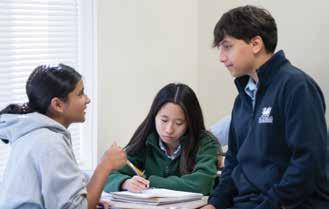
These leadership opportunities and community initiatives reinforce high expectations for middle school students. Faculty members work closely with students, encouraging them to reflect on their actions, understand their impact on others, and make thoughtful choices. In this environment, students recognize that leadership extends beyond formal roles and express it through daily actions, from standing up for what is right to supporting a friend in need.
The Middle School’s culture thrives on this balance of high expectations and resolute support. Teachers provide students with challenges that stretch their abilities, knowing that growth comes from navigating difficulty with persistence. At the same time, they offer encouragement and guidance, helping students build the confidence they need to take risks. Whether students are engaging in a spirited ethics debate, collaborating on a project, or earning points for their team through acts of kindness, they are developing resilience and a sense of purpose.
This emphasis on ethics and leadership complements the division’s ongoing commitment to academic excellence. Teachers design classes to challenge students intellectually while fostering curiosity and creativity. Teachers encourage students to ask questions, explore multiple solutions, and take ownership of their learning. Additionally, they integrate lessons from the ethics program into the broader curriculum, helping students understand how values and decision-making influence every subject, from literature to science.
Beyond the classroom, community service and extracurricular activities provide students with additional
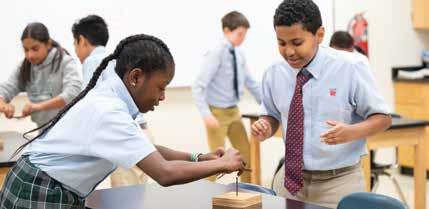
opportunities to apply the values they are learning. Whether they are participating in service projects, supporting younger students, or representing their school in competitions, middle school students are constantly applying what they learn in meaningful contexts. These experiences reinforce the idea that education extends beyond academics and shapes character while inspiring students to make meaningful contributions to the world.
Stewart reflects on the purpose behind these efforts, emphasizing that the middle school years are a critical time for developing identity and values. “We want our students to grow not only academically, but also as individuals who make ethical choices, show compassion, and lead by example,” she explains. The programs introduced this year are intentionally designed to equip students with the tools to do just that. They encourage reflection, foster a strong sense of community, and prepare students to take on leadership roles with integrity.
The 2025–2026 school year promises to be a transformative experience for students. Through enhanced community spirit, thought-provoking ethics education, and meaningful leadership opportunities, students are learning to rise to challenges with confidence and to contribute to their community with purpose. These experiences not only prepare them for the Upper School but also lay the groundwork for the responsibilities they will face in the broader world. At GCS, the middle school years are more than just a bridge between childhood and adolescence— they are a time when students begin to define who they are and the kind of leaders they want to become.
UPPER SCHOOL
The Upper School enters the 2025–2026 academic year with an invigorated vision of learning that blends innovation, interdisciplinary exploration, and real-world engagement. Over the past several years, the division has steadily expanded its elective offerings, creating opportunities for students to pursue their interests while building the critical thinking and problem-solving skills essential for the future. The result is a program that challenges students to explore widely, think deeply, and define their paths with confidence.
A growth in electives reflects both student demand and the passion of faculty members eager to share expertise beyond the core curriculum. Students now have access to a greater variety of courses than ever before, starting as early as ninth grade, which traditionally offered only an arts elective. Recent offerings such as Explorations of Artificial Intelligence, Financial Literacy, Rocketry, African American Studies, The Organic Arts, and Improvisational Comedy capture the interdisciplinary spirit of a Glenelg Country School education. This year, the program expands further with the introduction of two new courses: Introduction to Graphic Design and Introduction to Music Production. These courses tap into skills students already develop in their media-rich lives outside of school. Scott Proffitt, director of studies, underscores how these offerings ignite curiosity and empower students to discover their passions, uncover their purpose, and develop their critical thinking skills. These courses, he notes, give students tools not only to understand the world, but also to shape it.
Multiple goals drive the expansion of the curriculum. One is to expose students to a broad range of learning experiences that stretch their abilities and perspectives. Another is to prepare them for the rapidly evolving landscape of career pathways awaiting this generation. A third is to draw on the unique skills and talents of Upper School faculty, whose expertise allows them to create courses that combine academic rigor with relevance. This intentional approach reflects a broader philosophy: learning is most powerful when it connects classroom discussion to the challenges and opportunities of the real world.
This philosophy also drives the increasing emphasis on experiential learning. Upper School students now
EXPANDING HORIZONS THROUGH CURRICULUM, EXPERIENCE, AND INSPIRATION
participate in an expanded range of off-campus experiences, from grade-level field trips tied to core courses to elective excursions to local cultural sites and immersive international travel. Recent trips have taken students to the Bureau of Alcohol, Tobacco, Firearms and Explosives to learn about fire prevention, the Smithsonian Environmental Research Center to delve into biodiversity, and local farms, where they have discussed issues of land ownership, agriculture, and sustainability. Others have ventured far beyond Folly Quarter Road, exploring the streets of Seoul, Korea and Kyoto, Japan, where students connected history, culture, and global perspectives. Each experience underscores that learning does not end at the classroom door; it thrives wherever curiosity meets opportunity.
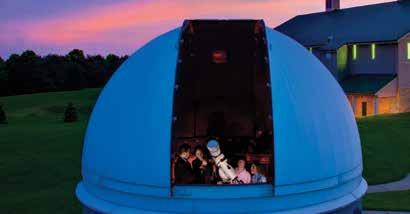
Among the faculty leading this charge are teachers whose courses not only broaden students’ knowledge, but also inspire them to ask more profound questions about who they are and what they value. Brian Shearer, director of community engagement, launches a series of trimester seminars this year that challenge students to think deeply about their lives. In Philosophical Concepts, students explore questions about reality, knowledge, and free will, while Moral Philosophy and Ethics confronts students with dilemmas in medicine, technology, and justice. At the same time, Life Worth Living pushes them to reflect on values, principles, and the pursuit of a meaningful life. These courses draw on a rich array of thinkers, including Plato, Kant, and Mill, as well as Viktor Frankl, Martha Nussbaum, and Michael Sandel. The interdisciplinary nature of these courses invites students to weave together ideas from multiple fields, recognizing that understanding life requires more than answers; it requires the ability to ask enduring questions.

Shearer describes his courses as spaces where students slow down and reflect amidst the noise of modern life. They do not seek easy answers but cultivate intellectual tools, personal reflection, and ethical courage. “Whether we’re untangling ethical dilemmas or exploring what makes life worth living, the goal is to help students develop clarity, compassion, and the courage to wrestle with the biggest questions,” Shearer explains. These seminars remind students that education is not merely what they know; it is who they are becoming. The courses also lay the groundwork for Integrative Seminar, where grade 12 complete a rigorous, interdisciplinary research paper or project.
Just as Shearer’s courses invite students to reflect on their inner world, physics teacher Krystal Rolon inspires them to look to the cosmos. Rolon, who also serves as robotics coach and director of the Gould Observatory, has developed an impressive series of opportunities for students to engage with space exploration. Her electives in Observational Astronomy and Space Science and Technology provide hands-on experiences with cutting-edge technology, exposing students to the people and programs shaping contemporary exploration. Her vision is clear: to foster a love of space exploration and nourish students’ natural curiosity about the wonders above. Future plans include electives in avionics and space systems, as well as trips to the Smithsonian National Air and Space Museum, the Steven F. Udvar-Hazy Center, and the Johns Hopkins Applied Physics Laboratory. These trips are not simply tours; they are conversations with scientists, engineers, and professors who share both technical knowledge and personal stories of discovery.
Rolon emphasizes that the skills needed for space exploration extend beyond technical expertise. Adaptability, collaboration, and creative problem-solving are essential, sometimes even for survival. “Developing a student’s ability to be a team player, healthily resolving conflicts, and communicating effectively in high-stress situations requires an environment where students can learn safely and freely,” she notes. Her field trips reflect this balance between hard and soft skills, encouraging students to learn from experts while also practicing teamwork and resilience.
The scope of Rolon’s programs extends far beyond local visits. Last year, she led a STEM-themed trip to the United Kingdom, where students explored Stonehenge, the Greenwich Observatory, and London museums while also engaging in lessons on forensics, computer science, and astronomy. Her “star parties” at the Gould Observatory invite students, families, and the public to view celestial objects through the school’s telescope and share questions about the universe. These gatherings blend science with wonder, reminding participants why curiosity matters.
Rolon often connects her passion for space with broader philosophical themes, echoing ideas that resonate with Shearer’s work. She references the “Pale Blue Dot” image taken by Voyager 1, a reminder of humanity’s fragile place in the universe and its responsibility to care for Earth. The night sky, she notes, has shaped human stories from ancient folklore to navigation, religion, and science. It continues to inspire questions: Are we alone? How did we get here? What is in store for our future? What is the fate of the universe? For Rolon, space exploration embodies both human power and human responsibility, striking a balance between courage and humility, knowledge and wisdom. The approach to learning she and Shearer promote prepares students not only to take their place in the world but to do so with vision, compassion, and perspective.
The Upper School’s evolving curriculum and experiential opportunities work together to create an education that is both expansive and personal. Students move through courses that challenge them to think critically and experience electives that spark new passions. They travel to sites where theory meets practice and engage with mentors who push them to ask questions that matter. Throughout, students are encouraged to define their own paths while contributing to something larger than themselves. As the school year unfolds, the Upper School continues to facilitate an environment where students discover their voice, refine their skills, and engage with the complexity of the world around them. The result is an education that not only prepares them for the next stage but also shapes who they will become. n
Danielle Peterson contributed to this article.
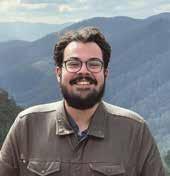
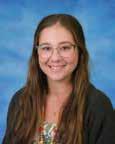
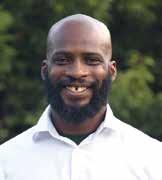
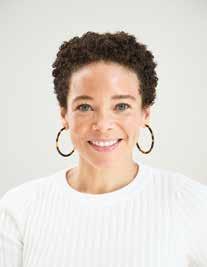
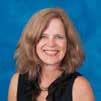
NEW YEAR, NEW FACES
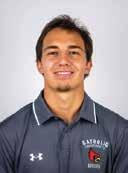
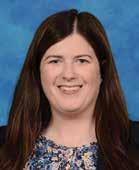





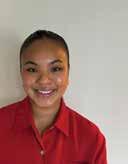

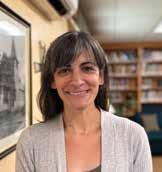
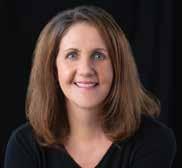

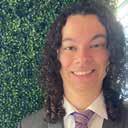
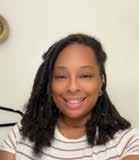
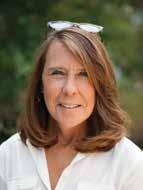
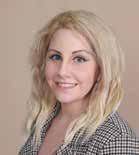
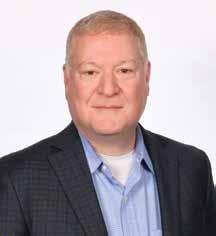
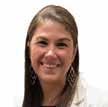

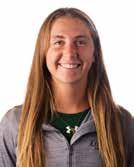
WELCOME TO OUR NEW DRAGONS
This year, Glenelg Country School (GCS) welcomes an outstanding group of new faculty and staff whose talents and experiences will enrich our community. From innovative educators to dedicated staff members, each brings unique skills and energy to students and families. Meet the newest members of our community.

SHAYLAN AHEARN ’19
Ahearn, a member of the Class of 2019, returns as athletics outreach coordinator. She will focus on student-athlete recruitment and development while also supporting current athletes and serving as a member of the girls lacrosse coaching staff.

MAYA AMMONS
Ammons joins GCS as associate director of admissions. She has been deeply involved in her children’s schools and community organizations, often serving in leadership roles. She is eager to bring her passion for education, equity, and connection to the admissions team.

LOUISE ANDREWS
Andrews has worked in each division of GCS since 2018. She is now the assistant librarian for the Lower and Primary Schools, combining her love of books with supporting young learners, while also leading the Middle School’s Destination Imagination program.

MARY KATHRYN BARRY
Barry joins the Middle School as a sixthgrade English teacher. She brings experience teaching middle and high school students, most recently at Saint James School. She is passionate about engaging students in thoughtful discussion and critical analysis.

VICKI BRISTOL
Bristol transitions to her new role as kindergarten teaching assistant after serving in the division’s after-care program. She brings a strong commitment to student support and hopes to foster growth while pursuing a master’s in school counseling.

PHILLIP CONSUEGRA
Consuegra is the new director of institutional advancement. He previously served as vice president of strategic initiatives at Don Bosco Technical Institute. He is excited to contribute to GCS’s mission by leveraging his extensive independent school development experience.

AIDAN CZZYRYCA
Czzyryca joins the technology department as a support specialist. He has a strong background in IT, having previously worked at Mt. St. Joseph. He is eager to support the community while pursuing his ambitions in cyber forensics.

KWAME DARKO
Darko joins the Upper School’s as a math teacher and ninth-grade advisory team. He brings 20 years of independent school experience as an educator, coach, and administrator. He is excited to inspire students in the classroom and on the soccer field.

JACKSON ENGLUND
Englund joins the Middle School as its choir and music appreciation teacher. A graduate of Florida State University, he specializes in choral music and multiple instruments. He looks forward to sharing his love of music and helping direct musicals.

JULIE FURST
Furst, who previously worked in the Primary School, is now the Lower School art teacher. She is passionate about helping students develop confidence and creativity in art. She can’t wait to inspire artists in the classroom and coach varsity tennis.

QUICHEY JOHNSON
As the Upper School’s new physical education teacher and grade 10 advisor, Johnson will also coach varsity field hockey and junior varsity basketball. She is committed to promoting health, fitness, and teamwork in the school community.

KIMBERLY LARRICK
Larrick brings over 20 years of elementary teaching experience in Howard and Carroll counties. She joins GCS as the fourth-grade homeroom teacher in the Lower School. She is excited to foster curiosity and growth in her students.

TAMMY LEFFLER
Leffler is the Primary School’s new art teacher. She is an experienced artist and educator who believes art is about expression and discovery. She is passionate about nurturing creativity and empathy in young learners.

CATHLEEN LOPEZ
Lopez joins GCS as the new head of Lower School. She has over 30 years of experience in education and administration in Howard County schools, and is committed to creating a positive and engaging environment for students and teachers.

KEVIN MACALUSO
Macaluso returns to GCS after two years in New England, rejoining the Upper School humanities department and grade 10 advisory team. He is eager to reconnect with students and contribute to the humanities program.

JAMIE MIRON
Miron joins the Primary School as a prekindergarten teaching assistant. She brings both classroom and administrative experience to her role. She hopes to support young learners and families at GCS.

ASHLEY MITCHELL
Mitchell joins the Upper School as the choir teacher and grade nine advisor. Previously the arts departments chair at Barrie School for six years, she is excited to direct choir, Café Cabarets, and the Upper School musical.

ROSANNE MORICI
Morici joins the Upper School humanities department and ninth-grade advisory team. She has taught at Georgetown and Syracuse universities and has earned recognition for teaching excellence. She looks forward to fostering interdisciplinary learning and cultural exchange.

ERICA OAKS
Oaks joins the Primary School as a prekindergarten teaching assistant. She has extensive experience working with young children. She is passionate about supporting early learners and connecting with families.

PATRICIA PORCARELLI
Joining the Middle School as a seventhgrade English teacher, Porcarelli brings more than 20 years of experience in teaching and school leadership. She is eager to foster strong communication and a love of literature in her students.

KELLIE RILEY
As the new Primary School science and Forest Time teacher, Riley has over 15 years of experience teaching students with diverse learning needs. She is committed to inspiring exploration and hands-on learning in the outdoors.

JACOB ROCHA
Rocha, a recent graduate of The Catholic University of America, joins the Middle School as a seventh-grade history teacher. He holds a degree in secondary education with a minor in Hispanic studies. He is excited to build enthusiasm for history and coach soccer.

DANIEL WRAY
Wray joins GCS as the new director of operations. He has more than 20 years of facilities and operations experience at Marriott, Choice Hotels, and the University of Maryland. He is committed to enhancing campus operations and supporting the school community.
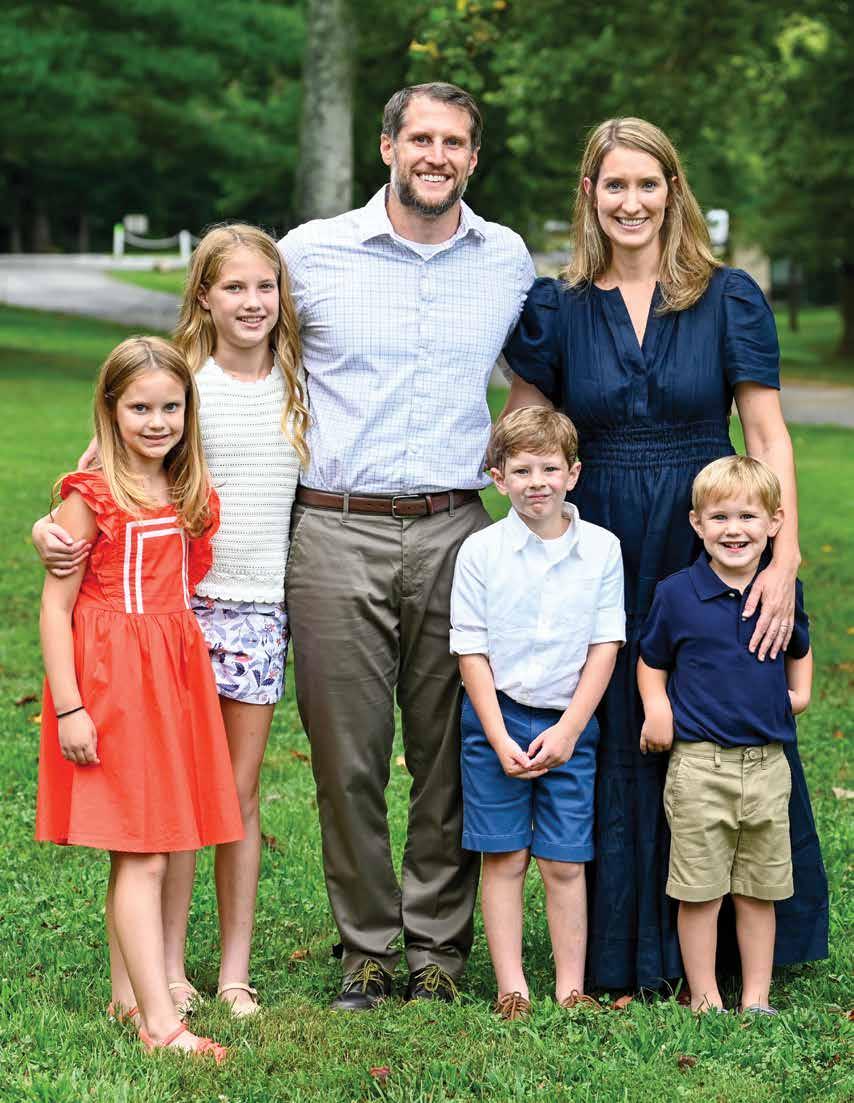

FAMILY PROFILE SERIES
WHY WE CHOSE GCS
FROM DISCOVERY DAY TO DAILY LEARNING, THE POMPEYS FOUND A SCHOOL THAT VALUES CURIOSITY, COMPASSION, AND COMMUNITY.
By Karen Wootton DIRECTOR OF ADMISSIONS AND FINANCIAL AID
Glenelg Country School’s vibrant community is shaped by families who value learning, growth, and connection.
The Pompey family became part of this community after experiencing firsthand the confidence and joy Glenelg Country School (GCS) inspires in its students. They have come to appreciate the thoughtful teaching, engaging programs, and the way the school supports their children at every stage of their development.
Sarah and Vince Pompey are the parents of four children: Anna in grade five, Elise in grade three, kindergarten student Nate, and Ben in pre-kindergarten. The family joined GCS two years ago when Anna and Elise entered third- and first-grade, respectively. Their youngest, Ben, began in the Little Dragons 3s program last year, while Nate is currently attending a private school equipped to meet his learning needs, with hopes of joining his siblings at GCS in the future.
The Pompeys first learned about Glenelg Country through Sarah, who grew up in the area. Now living in Fulton, MD, the family initially enrolled their daughters in another local private school. Without a specific plan to change schools, Sarah attended a fall Discovery Day at GCS out of curiosity. She describes being immediately impressed, noting that she “did not expect to fall in love, but did.”
The visit left a lasting impression, particularly the Upper School student speakers. Their comfort, confidence, and happiness stood out to Sarah, qualities she felt were not always evident in students their age. She recognized that GCS focuses not only on academics, but also on the development of the whole person. She had been searching for a school that valued collaboration with
parents, personalized education, close teacher-student relationships, and diverse opportunities—all of which she found at Glenelg Country.
Following further consideration and discussions with her husband, Pompey applied and scheduled shadow visits for her daughters. The visits solidified their decision to join the school community. Anna and Elise felt welcomed, enjoyed the variety of special subjects, and appreciated the opportunities to play outdoors.
Since enrolling, the Pompeys have consistently experienced the supportive and engaging environment that initially drew them to GCS. Sarah recalls an early moment of affirmation during a fall conference with Elise’s firstgrade teacher, Dan White. His detailed understanding of Elise’s strengths, challenges, and personality after only a few weeks of school impressed both parents. Under his guidance, Elise began a targeted reading plan that resulted in significant growth in just six months.
The family appreciates the activities that foster school pride and connection across age groups, such as the All School Choral Concert, the buddy program, and the All School Relay. One memory that stands out to Pompey is attending a basketball game where Anna’s Upper School buddy, gave her a hug after the game, a small moment that meant a great deal to her daughter. Family Day at the beginning of the year also stood out as a meaningful way to help new families feel welcomed and connected.
The growth the Pompeys have seen in their children over the past two years has been remarkable. For Anna, the development of writing skills, self-confidence, and
independence has been significant. Pompey credits fourthgrade teacher Stacey Benzing with teaching strong writing habits, good study skills, and organization. Elise has shown tremendous progress in reading, benefiting from the interdisciplinary approach to learning. The Pompeys recall an example of Elise’s excitement when she studied ancient Egypt in class while also writing her name in hieroglyphics during art.
Ben’s experience in the Little Dragons 3s program has been equally positive. The Pompeys describe the program as perfectly meeting the needs of children at that age. They describe it as “phenomenal, like a college for toddlers,” citing the variety of specialist-led subjects, abundant outdoor time, and learning through play that encourages a “we, not me” mindset. The family particularly appreciates the daily communication and photo updates from teachers, which make them feel connected to Ben’s experience.
The family have also enjoyed actively participating in the school community. Sarah has volunteered in various capacities, while Vince has joined field trips, giving both parents opportunities to engage directly with their children’s learning environment. Sarah fondly remembers moments on campus where she could see all her children enjoying different activities: one at recess, another celebrating a French event, and another sharing an outdoor lunch with friends. The family also values the way their children, despite being in different grades, interact and support each other. Elise and her classmates serve as reading buddies for Ben’s class, and both sisters enjoy looking out for their little brother during the school day.
For families considering Glenelg Country School, the Pompeys emphasize their belief in the value of the school’s education. They describe the school as a significant investment, but one that is “well worth it.” They believe education shapes who students become, and they feel strongly that GCS provides the environment they hoped for: a place where students learn through experiences, meet people from diverse backgrounds, and focus on becoming good individuals.
Looking to the future, the Pompeys are enthusiastic about their children’s continued journey at GCS, anticipating the opportunities awaiting them in Middle and Upper School. They appreciate the school’s ability to provide experiences that encourage independence while supporting students through challenges.
“As parents,” the Pompeys share, “we work hard to teach our kids to be kind and compassionate, eager to contribute to their community, and free to discover who they are as individuals. We want them to excel and also feel supported when they make mistakes and learn from those experiences.GCS is not just a school. It is a community that supports our efforts and values our children. The teachers really make the difference; they are just wonderful.”
For the Pompeys, Glenelg Country School is more than an educational institution. It is a place where their children are nurtured, challenged, and loved; a community where they can grow into the best versions of themselves. n
Danielle Peterson contributed to this article.
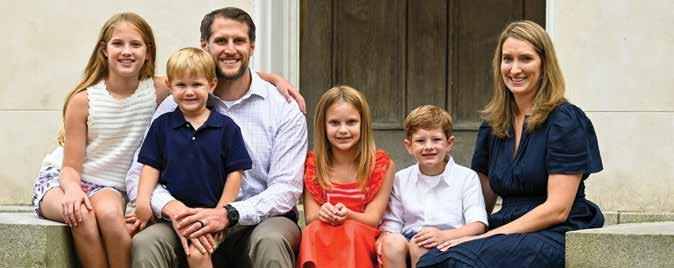
Vince and Sarah Pompey with their children, Anna ’33, Ben ’39, Elise ’35, and Nate.
SERVICE IN ACTION
FROM FARMS TO CLASSROOMS, STUDENTS DISCOVER THAT TRUE LEADERSHIP BEGINS WITH SERVING OTHERS.
By Brian Shearer DIRECTOR OF COMMUNITY ENGAGEMENT
At Glenelg Country School, service is not an extracurricular option—it is central to the school’s identity. Across all divisions, students are encouraged to use their talents to benefit others, developing empathy and a sense of responsibility along the way. Through service-learning, they gain an understanding that true leadership extends beyond academic success; it requires meaningful contributions to the community. This belief comes to life most vividly through the Middle and Upper School’s service programs, where students step outside the classroom and into the world to make a difference in the community.
This fall, every middle school student will participate in a day of service designed to connect them directly with local organizations. Introduced last year, these experiences pair each grade with a community partner that aligns with its developmental stage and capacity to contribute. Through these partnerships, students not only learn about civic responsibility, they also live it.
For sixth-grade students, the journey begins at Little Portion Farm, a nonprofit in Ellicott City, MD, that practices regenerative agriculture and combats food insecurity. Students roll up their sleeves to harvest vegetables, prepare garden beds, and learn firsthand about sustainable farming. The work is physical, yet deeply rewarding, as students see how their efforts directly support families in need. Beyond the tasks, they gain an appreciation for environmental stewardship and the power of small actions to create lasting impact.
Seventh-grade students shift their focus from environmental care to building human connections at Lighthouse Senior Living, also in Ellicott City, MD. Here, service is rooted in relationships. Students play games, craft, and share stories with residents, often forming bonds across generations. For many, it is their first chance to connect meaningfully with older adults outside their family. These moments teach patience, empathy, and the importance of being present; lessons that stay with them long after the visit ends.
In the eighth grade, students conclude the service sequence at Cedar Lane School, a public school in Fulton, MD, serving students with multiple disabilities. Working alongside Cedar Lane’s teachers and staff, Glenelg Country School students assist with classroom activities and support events, learning to adapt to different communication and learning styles. This experience often sparks profound reflection as students witness the power of inclusion and care in building stronger communities.
These three experiences—environmental, intergenerational, and educational—create a scaffolded journey that deepens each year. By the time students leave middle school, they have seen service in action across multiple settings, gaining insight into how they can contribute in diverse ways. More importantly, they carry forward an understanding that their actions, no matter how small, matter to someone else.
In the Upper School, service takes on greater independence and personal initiative. Though students
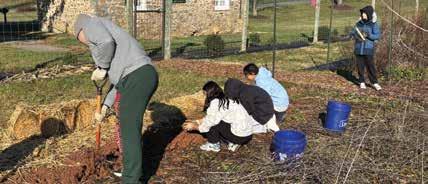
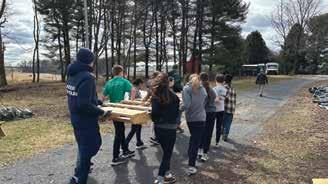
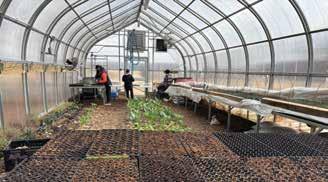
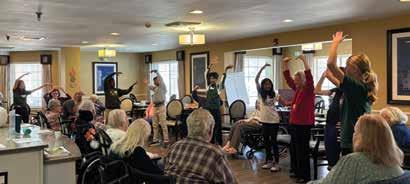
must complete service hours each year, many far exceed the minimum requirement, driven by a desire to make meaningful contributions. Students partner with organizations such as Special Olympics Howard County, where they support athletes with intellectual disabilities, and Rebuilding Together Howard County, where they assist in repairing homes for neighbors in need. Others volunteer with food pantries, tutoring programs, and youth organizations, pursuing causes that personally resonate with them.
Through these experiences, Upper School students develop leadership skills that extend beyond the classroom. They learn humility from serving alongside those they help, teamwork from collaborating with peers and mentors, and resilience from seeing firsthand the challenges others face. Each service opportunity reinforces the school’s belief that education is about more than acquiring knowledge; it is about shaping character.
Students such as Danielle Choi ’26 and Joyce Yun ’26 embody this spirit through their involvement in programs such as the Hugh O’Brian Youth Leadership Maryland Seminar, where they explored leadership, ethics, and community engagement. Others, like recent graduate
Sid Bajaj ’24, have been recognized on a national scale for their dedication. Bajaj’s $10,000 Ortho Dermatologics ASPIRE HIGHER Scholarship celebrates his outstanding achievements in leadership, public service, and academics, demonstrating how service can open doors to broader opportunities while enriching lives.
Service at Glenelg Country School isn’t confined to a checklist of hours or a one-time event. It is woven into the fabric of school life, guiding students as they grow into compassionate citizens. From planting vegetables on a farm to repairing homes, from building friendships with senior residents to supporting children with disabilities, students learn that leadership is not about standing out; it is about uplifting others.
This commitment to serving others reflects the school’s core values: to discover, contribute, thrive, and excel—not only for oneself but for the greater good. By integrating service into the rhythm of daily life, Glenelg Country ensures that students do more than observe the needs of the world around them—they respond to those needs with heart and purpose. In doing so, they gain the most powerful kind of education: one that prepares them to make a difference. n
Clockwise, from top left: Students work to cleanup Whipps Cemetary in Ellicott City, MD; Upper School students carry supplies while volunteering at Rebuilding Together Howard County; Seventh-grade students lead exercises at Lighthouse Senior Living, in Ellicott City, MD; and sixth-grade students work at Little Portion Farm, in Ellicott City, MD.
HOW WE CDET CONTRIBUTE, DISCOVER,
The CDET page celebrates the many ways members of our community make an impact—whether through service, discovery, academic achievement, or personal excellence. Each issue highlights Dragons whose accomplishments reflect the school’s values and inspire others to pursue their passions.
Have you or someone you know been recognized for accomplishments in academics, athletics, the arts, service, or leadership?
Submit awards and recognitions celebrating achievements both in and beyond the classroom. Selected stories may be featured in the next issue of Spirit of the Dragon
Send your submissions to communications@ glenelg.org and help us celebrate the excellence of our Dragon community!
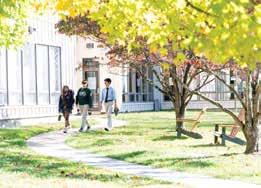
EXCEL, AND THRIVE
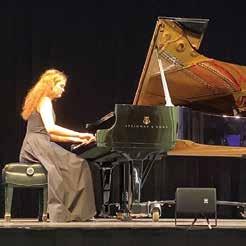
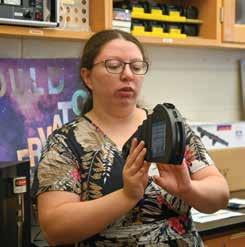
Maison ’28 was a finalist at the 10th annual Washington International Piano Festival, earning third place in the International Piano Competition hosted by the Catholic University of America. She showcased her artistry in performances this summer at the Kennedy Center on July 30 and the Strathmore Mansion on August 2.
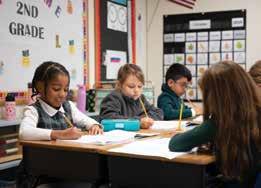
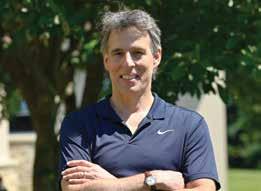
PROUD TO BE THE BEST
Glenelg Country School (GCS) is honored to be named the Best Private Upper School in the 2025 Best of Howard County Readers’ Choice Awards. This recognition reflects the excellence of our Upper School, where students engage in rigorous academics, the arts, and athletics while preparing for success in college and beyond within a supportive community.
GCS also received honorable mentions for Best Private Lower School and Best Principal, with Brandon Neblett, head of Upper School, recognized for his leadership and dedication to the community. These honors affirm Glenelg Country School’s mission to provide an exceptional education across every division.

Taisiya
Krystal Rolon, Upper School science teacher, has been selected by the Women in Aerospace 2025 Awards Selection Committee to receive the Aerospace Educator K–12 Award, a prestigious honor recognizing her contributions to the field. She will be celebrated at WIA’s 40th Annual Awards Dinner & Ceremony on October 9, at the Ritz-Carlton, Pentagon City, VA.
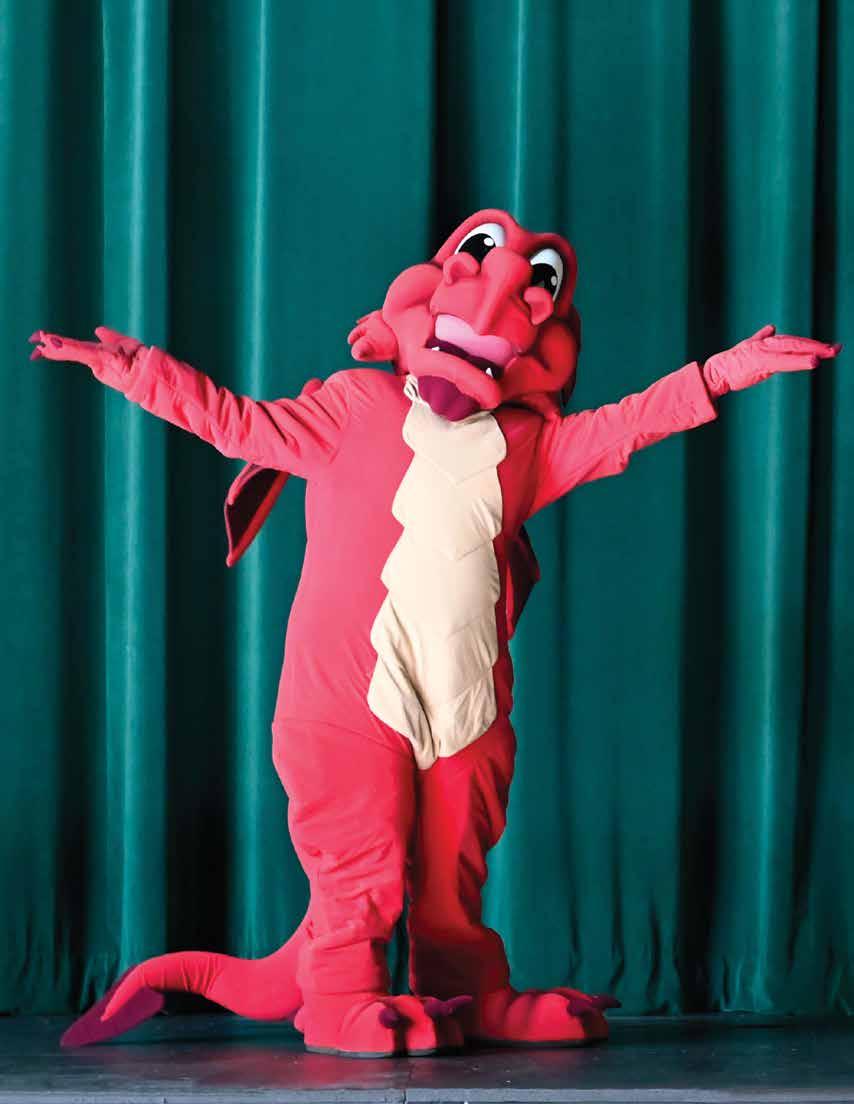
A YEAR IN THE SPOTLIGHT
THE 2025–2026 PERFORMING ARTS SEASON BLENDS TRADITION, CREATIVITY, AND THE MAGIC OF LIVE PERFORMANCE.
By Danielle Peterson DIRECTOR OF MARKETING AND COMMUNICATIONS
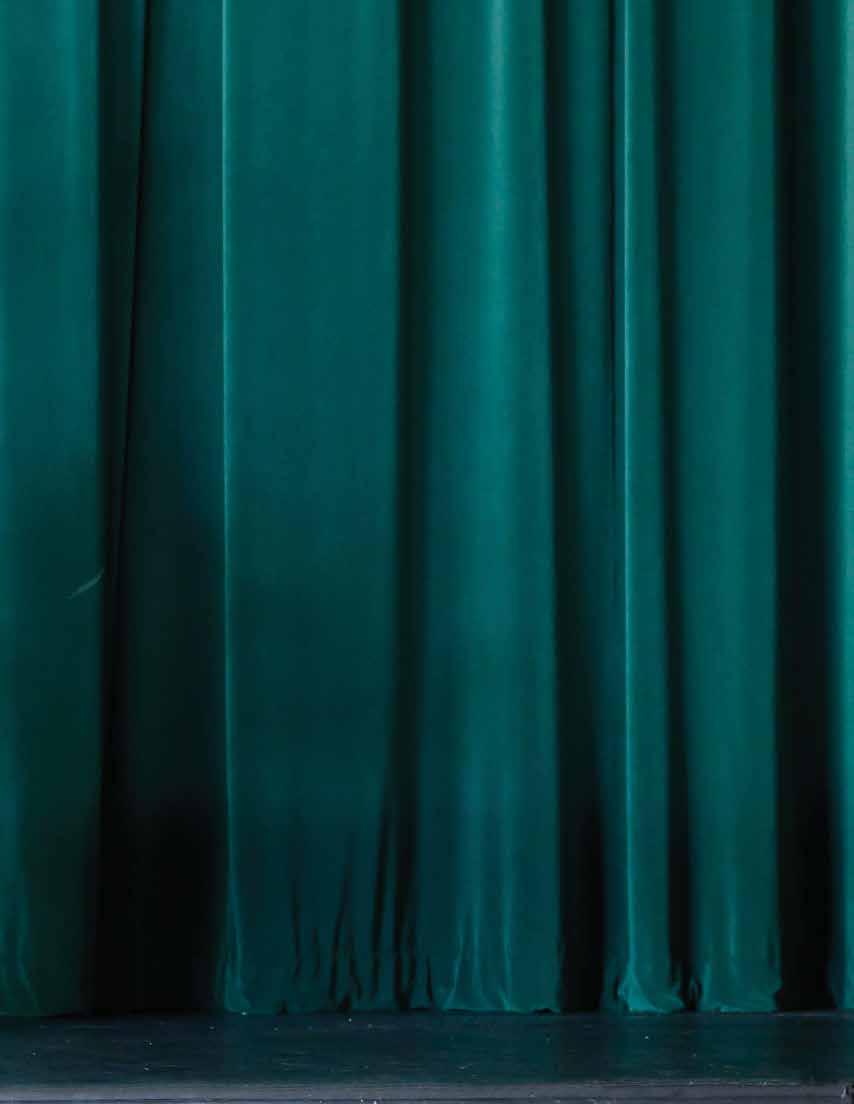
The 2025–2026 performing arts season at Glenelg Country School promises an inspiring blend of tradition, innovation, and student-driven artistry. From the heartwarming charm of early childhood concerts to the high-energy spectacle of full-scale musicals, the year ahead offers an array of opportunities for audiences to experience the joy, discipline, and imagination that define the arts at Glenelg Country School (GCS).
At the heart of the season is the Middle School’s eagerly anticipated production of Disney’s Frozen Jr., a stage adaptation of the beloved animated film that has enchanted audiences worldwide. The story follows two royal sisters—Elsa, born with magical powers to create ice and snow, and Anna, whose determination and love lead her on a quest to save their kingdom. Along the way, they encounter rugged ice harvester Kristoff, his loyal reindeer Sven, and the ever-optimistic snowman Olaf, who dreams of summer. Together, they navigate themes of love, selfdiscovery, and the courage to be true to oneself, set to an unforgettable score that includes Let It Go, For the First Time in Forever, and Do You Want to Build a Snowman?
Students begin preparing for the musical well before they sing the first note on stage. Casting will take place early in the school year, giving students the chance to develop their characters over several months of rehearsal. Under the guidance of the Middle School performing arts faculty, students will not only hone their acting, singing, and dancing but will also take an active role behind the scenes. From designing and painting sets to crafting costumes and managing props, students are deeply involved in shaping
the visual and technical elements that will transform the Mulitz Theater into the wintry landscapes of Arendelle. The process becomes a collaborative, immersive experience that teaches teamwork, problem-solving, and creative expression—skills that will serve them long after the final curtain call.
Following in the footsteps of the Middle School, the Upper School takes the stage in March with Legally Blonde, a high-energy, feel-good musical based on the hit Broadway show and film. The production follows the journey of Elle Woods, a fashionable sorority president who defies expectations by enrolling at Harvard Law School to win back her boyfriend, only to discover her own strength and potential along the way. Known for its witty dialogue, catchy musical numbers, and uplifting message, Legally Blonde offers a rich platform for Upper School students to showcase their talents in acting, vocals, and choreography.
Much like their Middle School counterparts, these performers will collaborate with peers in technical theater, lighting, and stage management, ensuring that every aspect of the show reflects the collective dedication of the cast and crew.
While the two musicals are marquee events, they are part of a much larger tapestry of annual performances that make Glenelg Country’s performing arts program a cornerstone of school life. The year begins with community-centered events like the Barnes & Noble Book Fair in November, where the Upper School choir lends a festive soundtrack to an evening of shopping, storytelling,
and school spirit. Shortly thereafter, a cherished tradition returns with the Lower School’s Turkey Day celebration. For more than 40 years, first-grade students—decked out as turkeys—have delighted audiences with songs in honor of Thanksgiving, joined by the soaring voices of the Lower School Advanced Choir.
Winter ushers in a series of choral and instrumental concerts across all divisions, showcasing the musical growth and dedication of students from Primary through Upper School.
The Middle and Upper School Choral and Instrumental Winter Concerts are highlights, presenting diverse repertoires that range from classical pieces to contemporary arrangements. In December, the Primary and Lower School Winter Concerts charm audiences with the youngest Dragons performing seasonal favorites, a joyful reminder of how quickly skills develop when nurtured by dedicated teachers.
Spring offers more chances for the community to come together in celebration of student talent. Grandparents and Friends Days in April invite special guests to campus for a combination of classroom visits, concerts, and art showcases. The Middle School’s Celebration of the Arts provides a lively mix of music, drama, comedy, and visual arts, with every student contributing to the gallery or stage. All Division Spring Choral and Instrumental Concerts unite performers from multiple grade levels, creating a musical bridge between divisions and reinforcing the school’s collaborative spirit.
One of the most anticipated spring traditions is the Middle and Upper School Band and Chorus Competition
at Hersheypark. Each year, GCS ensembles perform before a panel of adjudicators, earning consistently high marks for their skill and artistry. The day concludes with a wellearned celebration at the park—an experience that blends the thrill of competition with the joy of camaraderie.
The season concludes on a high note with the Lower School Musical in May, featuring the fifth-grade class in a fully staged production that serves as both a culmination of their Lower School performing arts experience and a bridge to the opportunities awaiting them in Middle School. Though the title is still to be announced, the tradition of every fifth-grade student having a role, whether on stage or behind the scenes, ensures that every student takes part in the creative process.
From the earliest rehearsals in September to the final ovations in May, performing arts at GCS reflect more than technical skill or polished productions; they represent a community’s shared belief in the power of creativity, discipline, and collaboration. Whether it’s the magic of Disney’s Frozen Jr., the empowering beats of Legally Blonde, or the warmth of an annual holiday concert, each performance offers students the chance to shine while inviting audiences to experience the transformative power of the arts.
In a year filled with melody, movement, and meaningful storytelling, Glenelg Country’s stages will once again remind us that the arts are not just an extracurricular activity; they are an essential part of what makes the school community thrive. n
November 6
All-School Barnes & Noble Book Fair
November 21–22
Middle School Musical: Disney’s Frozen Jr.
November 25
Lower School Turkey Day
December 10
Middle and Upper School Choral Winter Concert
Middle and Upper School Choral Instrumental Concert December 17
School Winter Concerts
December 18
School Winter Concerts
March 6–7
Upper School Musical: Legally Blonde
March 26
Middle School Celebration of the Arts
April 1–2
Grandparents and Friends Days
April 24
All-Division Spring Choral Concert
April 30
All-Division Spring Instrumental Concert
May 2
Hersheypark Band and Chorus Competition
May 15
Lower School Musical: Title TBD
UPPER SCHOOL SPORTS PREVIEW
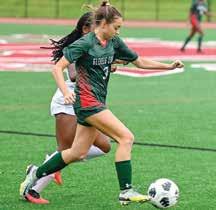
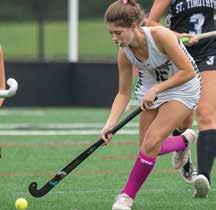
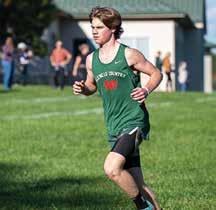
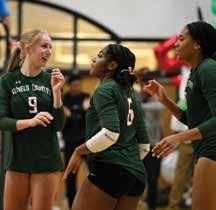
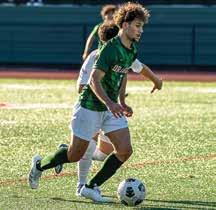
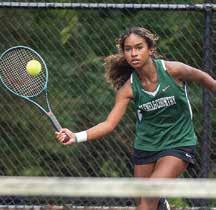
The 2025–2026 athletic year opens with energy and high expectations. Across every program, returning veterans, new coaches, and emerging talent are poised to make an impact. The fall is already underway, with early contests offering glimpses of the competitive spirit that will define the season.
Girls tennis began the year with early matches to build rhythm and confidence. With a full roster returning, the team is equipped to challenge for the IAAM C Conference title. Reigning No. 1 singles champion Zoe Taylor ’27 anchors the lineup with consistency and leadership. The home schedule intensifies with Mercy High School visiting on September 25, Roland Park Country School on October 3, and Severn School on October 9. These matchups will test their progress as they aim for a postseason run.
Volleyball enters a new era under head coach Kate Furgeson, whose energy has already inspired players. The squad carries experience from past B Conference play and is eager to contend for a spot in the finals. Early matches have sharpened their execution, and home contests against
St. Mary’s High School on September 30, Chapelgate Christian Academy on October 10, and John Carroll School on October 17 provide opportunities to showcase growth and resilience.
Girls soccer welcomed first-year head coach Kwame Darko, bringing fresh leadership to a program with a history of playoff appearances. The roster blends seasoned players with promising underclassmen, creating a team capable of a deep postseason run. A busy October awaits, beginning with Annapolis Area Christian at home on September 24. The schedule continues with Chapelgate Christian Academy on October 15, Friends School on October 17. This stretch of home games offers several chances for supporters to watch the team’s progress.
FALL 2025 VARSITY HOME SCHEDULE
Boys Cross Country
October 15 4 pm
Boys Soccer
October 7 4:15 pm
Friends School of Baltimore
October 14 4:15 pm
Cristo Rey Jesuit
October 16 4:15 pm
Beth Tfiloh
October 24 4:15 pm
St. John’s Catholic Prep
Field Hockey
September 22 4:15 pm
Friends School of Baltimore
September 25 4:15 pm
Catholic High School
September 29 4:15 pm
Indian Creek
October 10 4:15 pm
St. Timothy’s School
Girls Soccer
September 24 4:15 pm
Annapolis Area Christian
October 15 4:15 pm
Chapelgate Christian Academy
October 16 4:15 pm
Beth Tfiloh
October 17 4:15 pm
Friends School of Baltimore
Girls Tennis
September 25 4 pm
Mercy High School
October 3 4 pm
Roland Park Country School
October 9 4 pm
Severn School
Volleyball
September 30 5:30 pm
St. Mary’s High School
October 10 5:30 pm
Chapelgate Christian Academy
October 17 5:30 pm
John Carroll School
Please visit www.glenelg.org for schedule changes.
Although young, early games for the boys soccer team have helped establish chemistry, and the players continue to build momentum in the C Conference. As league play advances, late-season contests against Friends School on October 7 and Cristo Rey Jesuit on October 14, followed by face-offs with Beth Tfiloh on October 16 and St. John’s Catholic Prep on October 24, will be critical in determining how far this group can climb in the standings.
Field hockey, under the guidance of new head coach Quichey Johnson, is showing promise. Johnson’s emphasis on discipline and skill development has already influenced the team’s play. Senior captains Ella Dyer ’26 and Ella Stachurski ’26 provide steady leadership for a roster that is gaining confidence with each outing. Home matches against Friends School on September 22, Catholic High School on September 25, and Indian Creek on September 29 are early opportunities to establish a strong record. The season continues with a significant home game against St. Timothy’s School on October 10, a contest that may carry postseason implications.
Cross country, competing primarily off-campus, remains one of the most compelling programs this fall. For the girls, Bella Boats ‘26 returns with her sights on the top of the IAAM podium after finishing third last year. Her leadership is crucial for a team of developing runners, gaining experience with every meet. The boys, now led by head coach Jeff Fairman, are defending an undefeated 2024 season and team championship. Fairman’s focus on consistency and teamwork has the group well-prepared to extend its success.
This fall, GCS athletics reflects a commitment to growth, perseverance, and pride. Early competitions have provided valuable lessons, and the schedule ahead is filled with opportunities to capitalize on that progress. Home games will be key moments to demonstrate development, while away contests test mental and physical toughness.
Fans can expect thrilling performances, standout efforts, and meaningful growth across all programs. Each match, whether on campus or away, gives student-athletes the chance to display their preparation and dedication. The months ahead promise not only strong results but also memorable moments that define the school’s athletic tradition. With determination driving every practice and game, the 2025–2026 season is set to be one to remember. n
FROM INSTITUTIONAL ADVANCEMENT
Dear Glenelg Country School Community,
From my first campus visit, I was struck by the warmth of this community, and the pride students, families, faculty, staff, and alumni take in Glenelg Country School. It is an honor to join you as the new director of institutional advancement, and over the past few months, I have quickly come to appreciate the values and traditions that make this school exceptional. I am excited to partner with head of school Matt Walsh, associate head Greg Koffel ’03, the Board of Trustees, the advancement team, and each of you as we build on our strong foundation and look toward an even brighter future.
At its heart, a great school is built on relationships—between students and teachers, parents and faculty, alums and their shared history. Advancement is no different. While giving is often seen as a transaction, the most meaningful support comes from relationships rooted in trust. True philanthropy reflects a belief in the mission of the school and a personal commitment to its future. It says, “This community matters to me, and I believe in the difference it makes.”
As I begin my work, I want to offer this thought: the purpose of giving is not simply to fill a budget gap. It is to sustain the values that make Glenelg Country special while fueling bold ideas for what comes next. Contributions—of any size—preserve what we cherish today and help create the school we envision for tomorrow.
Throughout the year, you will hear more from me and our team. We will share not just numbers, but stories of impact—how your generosity shapes the student experience and strengthens our programs. We want every supporter to feel like a true partner in this work, whether your gift is $25 or $25,000. Every contribution matters, and every donor is part of something larger than themselves.
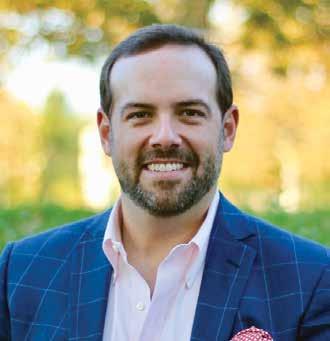
Advancement is a two-way conversation. As much as we ask for your support, we also want to listen. We want to know what inspires you, what matters most to your family, and how you hope to see our school grow. Your voice will help guide our efforts to create opportunities that benefit every student.
I am grateful to be part of this extraordinary community, and I look forward to meeting many of you in the months ahead. Together, we will celebrate our achievements, strengthen our connections, and pursue a vision that ensures Glenelg Country School continues to thrive for generations to come.
Warm regards,
Philip Consuegra Director of Institutional Advancement
PHILIP CONSUEGRA
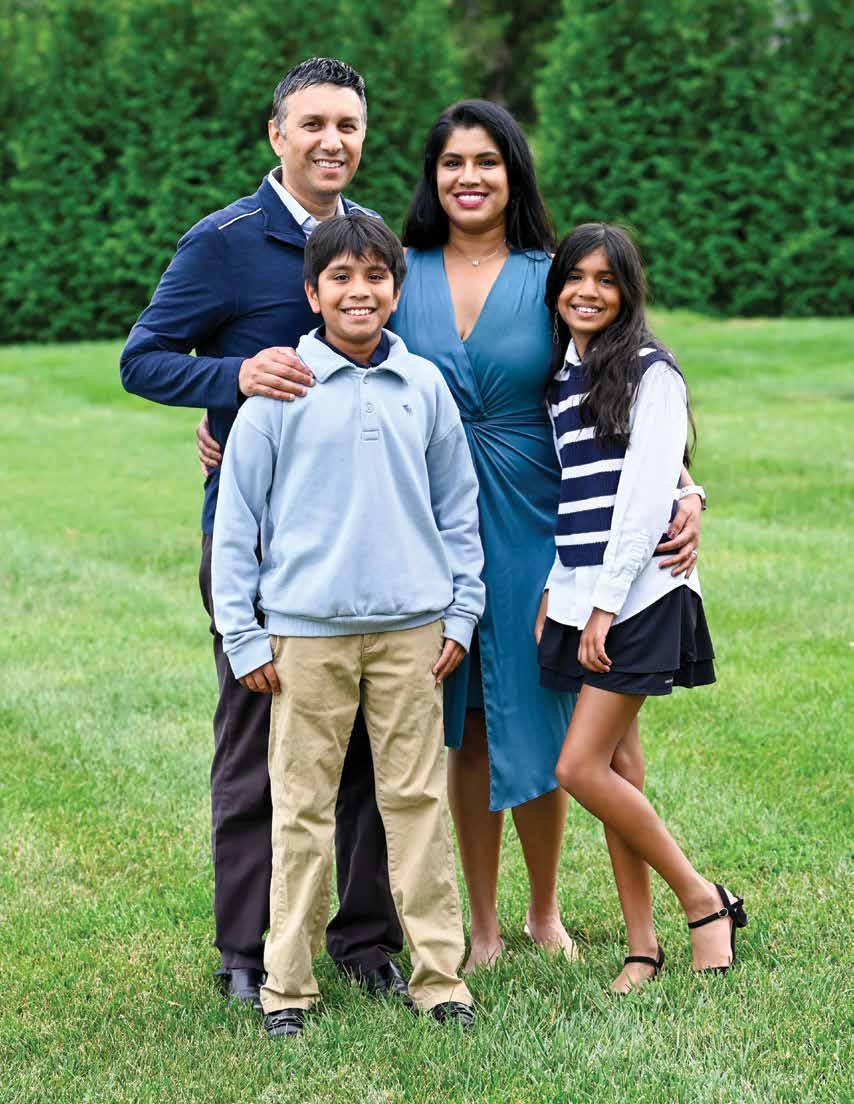

THE SPIRIT OF GIVING
THE BANSAL-MATTAI FAMILY DEMONSTRATES HOW PHILANTHROPY BUILDS COMMUNITY AND OPPORTUNITY.
By Lindsay Frost-Bhasin DIRECTOR OF DEVELOPMENT
For Cheryl Bansal and Andy Mattai, Glenelg Country School (GCS) has been more than a place where their children learn—it has become a community that shapes their family. Their son Jay joined the Little Dragons 2s program in 2016, followed two years later by daughter Mira. Today, Jay is in sixth grade and Mira in fourth, and Cheryl and Andy are proud of how both have grown academically and personally.
They attribute much of that growth to GCS’s hallmark balance of academic rigor and a nurturing environment. “Small class sizes allow for personalized attention and strong relationships between students and teachers,” Cheryl explains. “Our children have been able to discover their strengths because their teachers genuinely know them.” The family has also valued the sense of belonging that GCS fosters, from daily classroom experiences to milestone traditions that knit students and families together year after year.
That trust in the school inspired Cheryl and Andy to become consistent leadership donors, giving at this level each year. Their generosity ensures that GCS continues to provide the same transformative experiences to all students. “We’ve seen firsthand how much the school invests in every student’s growth, including our own children,” Cheryl says. “Giving back feels meaningful to us, knowing we’re helping other families access the same caring teachers, creative programs, and supportive community that have been so important to our kids’ development.”
Their commitment goes beyond philanthropy. Cheryl and Andy also invest in the school through their professional work. As physicians, they have sponsored key events through their respective practices, Medical and Aesthetic Dermatology and Innovative Psychiatry, bringing energy and resources to beloved GCS traditions like the 5K Dragon Dash and the annual auction. In 2023, Cheryl’s practice served as the lead Gold Sponsor of the inaugural gala, setting the bar for enthusiastic community support and helping to launch what has quickly become one of the school’s most spirited and successful fundraising events.
For Cheryl and Andy, supporting GCS is both personal and purposeful. Their gifts strengthen programs, enhance opportunities for students, and ensure that families across the community can benefit from the same nurturing environment Jay and Mira enjoy. “We want our children to understand that being part of a community means contributing to it,” Andy notes. “Supporting GCS is one way we can teach that lesson.”
Through their leadership, generosity, and partnership, the Bansal-Mattai family exemplifies the influential role donors play in strengthening Glenelg Country School and shaping its future. Their story is a reminder that philanthropy not only supports today’s students but also secures opportunities for future generations. Just as Cheryl and Andy have invested in GCS, every family can make a lasting impact. Together, our collective generosity ensures Glenelg Country will thrive for many years ahead. n
Andy Matti and Cheryl Bansal with their children, Jay ’32 and Mira ’34.
ALUMNI SPOTLIGHT
Faythe Cooper ’20
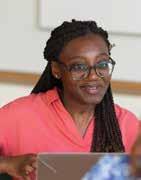
From the classrooms of Glenelg Country School (GCS) to Stanford’s laboratories and the streets of Taipei, Faythe Cooper ’20 has forged an impressive path in global health and research. She credits GCS with building her leadership and teamwork skills through rigorous academics, athletics, band, service, and the Honor Committee. Inspired by her Chinese teacher, Mrs. Ding, Cooper became proficient in Chinese, opening doors to teaching and research abroad.
After graduating, she attended Oberlin College, majoring in Chinese and biology. Her research spanned genetics at Oberlin, reproductive toxicology at Rutgers, and
Michael Diangelo ’18
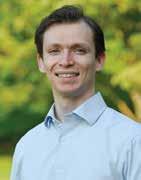
For Michael Diangelo ’18, Glenelg Country School was more than a school; it was the foundation for academic rigor, personal growth, and exploration. The intimate learning environment and supportive teachers shaped his work ethic, responsibility, and leadership.
After GCS, Diangelo earned a Bachelor of Science in business administration from Ohio State University, specializing in finance and economics with a minor in entrepreneurship and innovation. Internships, including a summer at Accenture, strengthened his passion for mergers and acquisitions, leading to a career in investment banking. He now serves as a senior analyst
virology at Stanford, where she earned the Best Poster Award in the Amgen Scholars Program. She also presented at the New England Science Symposium at Harvard University.
Cooper’s passion for learning led to teaching roles at Washington Yu Ying Public Charter School, work at the Library of Congress, and a Fulbright English Teaching Assistantship in Taipei, Taiwan. There, she fulfills her dream of teaching in a Chinese-speaking country while playing clarinet in an orchestra.
Cooper encourages students to adopt a growth mindset and seek mentors, crediting GCS with honing her writing and critical thinking skills essential to her research. She plans to continue advancing her work in research and global health while fostering cross-cultural understanding.
at Evergreen Advisors, guiding business owners through life-changing financial transactions.
Outside of work, Diangelo shares a passion for photography and videography with his cousin, traveling to bucket-list destinations to capture memorable moments. Last summer, they witnessed the Northern Lights over an active volcano in Iceland.
Diangelo credits GCS for teaching him the power of persuasive writing, a skill that benefits nearly every career. He advises students to challenge themselves, use available resources, and pursue their passions.
From student-athlete to successful investment banker, Diangelo embodies the school’s values of impact, community, and selflessness while continuing to grow professionally and personally.
ALUMNI EVENT HIGHLIGHTS
Pickleball Social
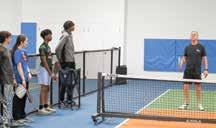
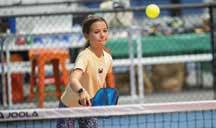

The first Pickleball Social, held on March 29, united students, families, alumni, and friends, raising funds for the Always a Dragon Award. Thirteen teams competed in spirited matches, with Middle School girls lacrosse coach Amy Bittinger and Jake Wallace winning first place. The event’s success sparked excitement for plans to make next year’s social even bigger.
Class of 2015 Reunion
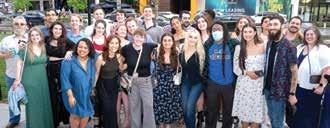
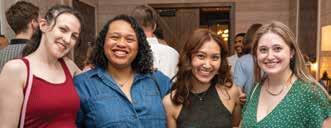
On May 3, the Class of 2015 celebrated their 10-year reunion at Blackwall Barn and Lounge in Columbia, MD. Over 40 alumni and faculty reconnected, sharing stories, milestones, and laughter. The evening honored lasting friendships, strengthened bonds, and set the stage for future gatherings that will continue celebrating the class’s spirited Glenelg Country roots.
Forum Career Talks
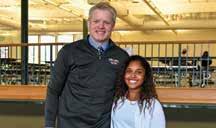
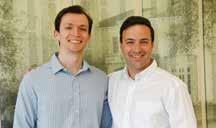
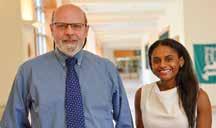
This spring, alumni continued to return to campus for the Alumni Career Forum series, sharing career paths, challenges, and advice. Gabby Tharkur ’14 and Michael Diangelo ’18 spoke to students in April, followed by Madison Sesay ’20 in May. Their stories reflected Glenelg Country School’s values—critical thinking, communication, and resilience—and inspired students to pursue passions, strengthening the connection between alumni and the school community.
IN MEMORIAM
ALUMNI
Bailey C. More ’13
FACULTY AND STAFF
Carol Gadsby P’93
June Gorham
Kathleen Sinkinson
FRIENDS
Julie Cohen P’27
Dick Gorham
Miia Illiano P’13
Diane Miller P’11 ’15
Colin Shea P’29
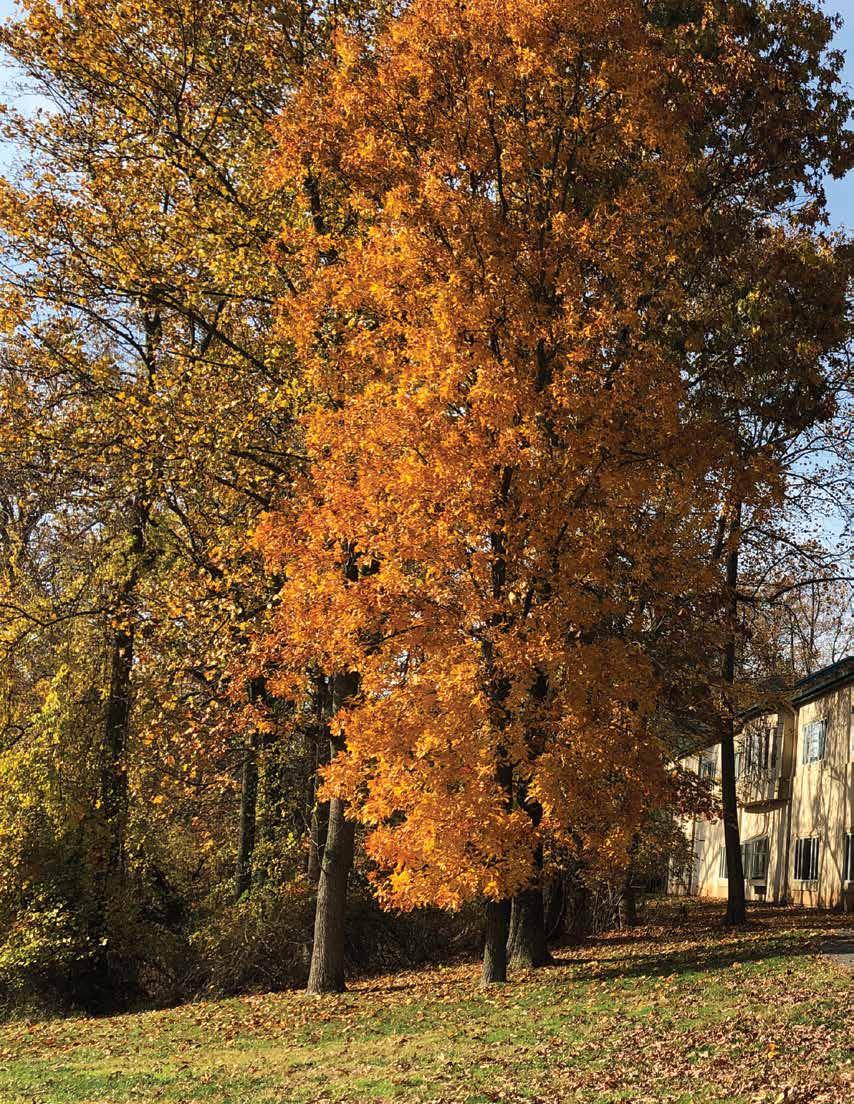
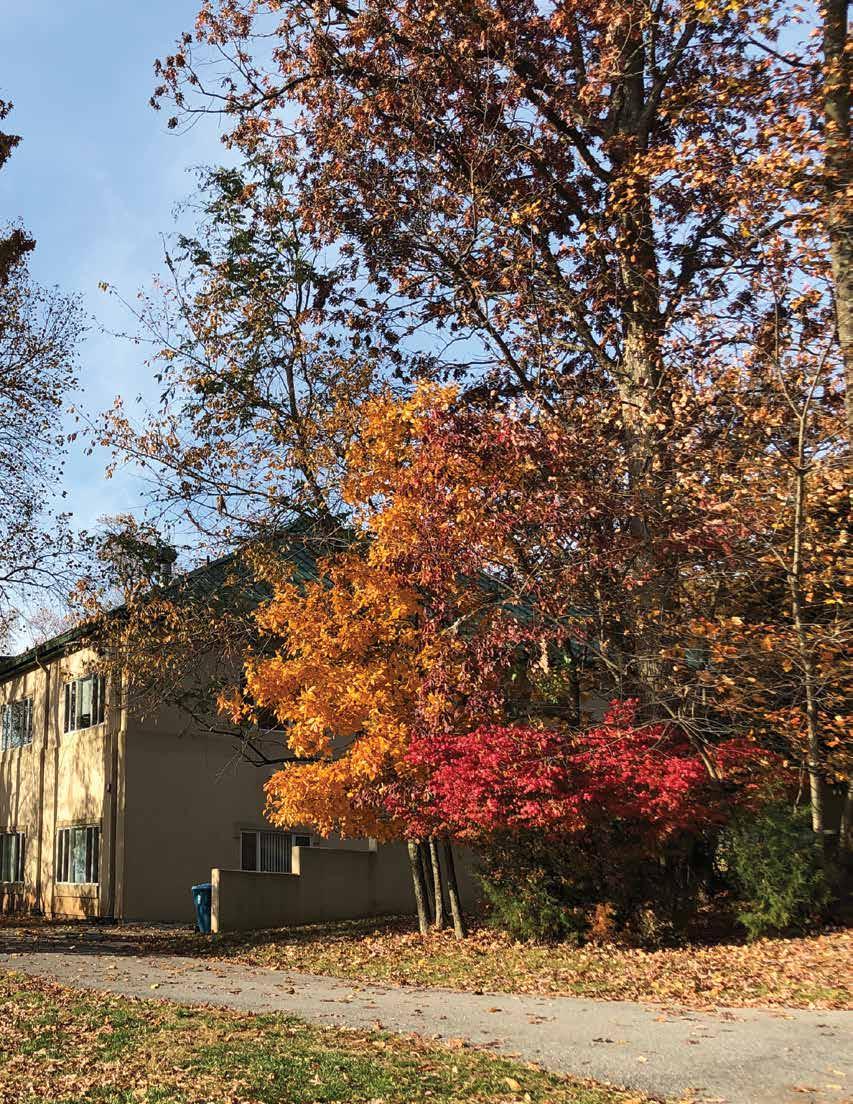
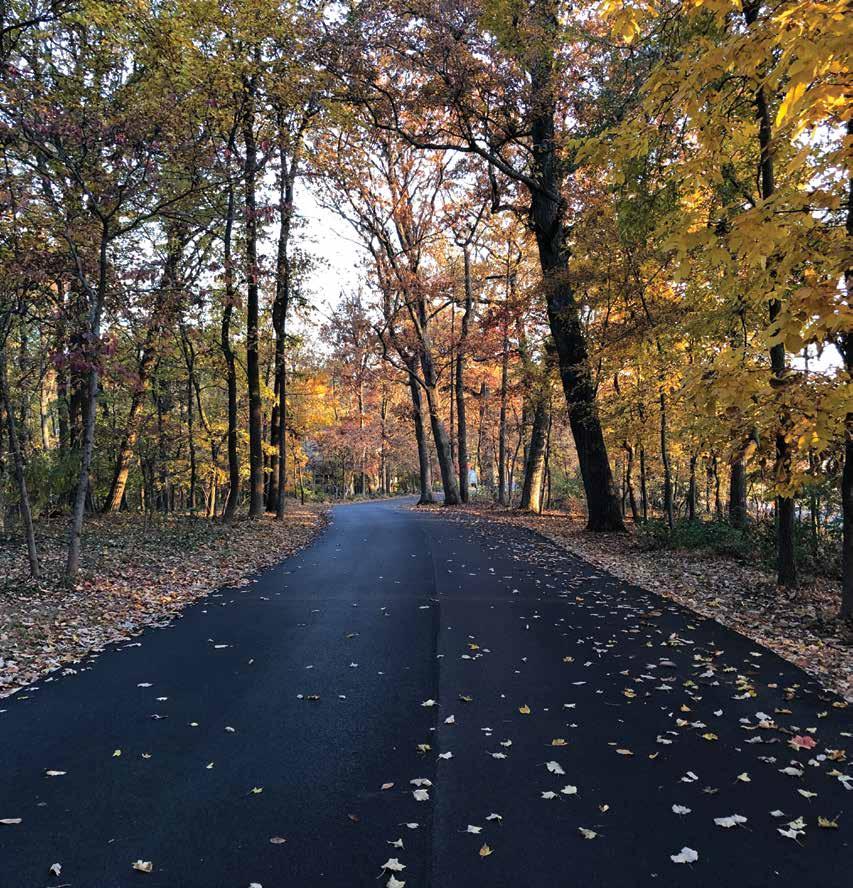
Indicia
